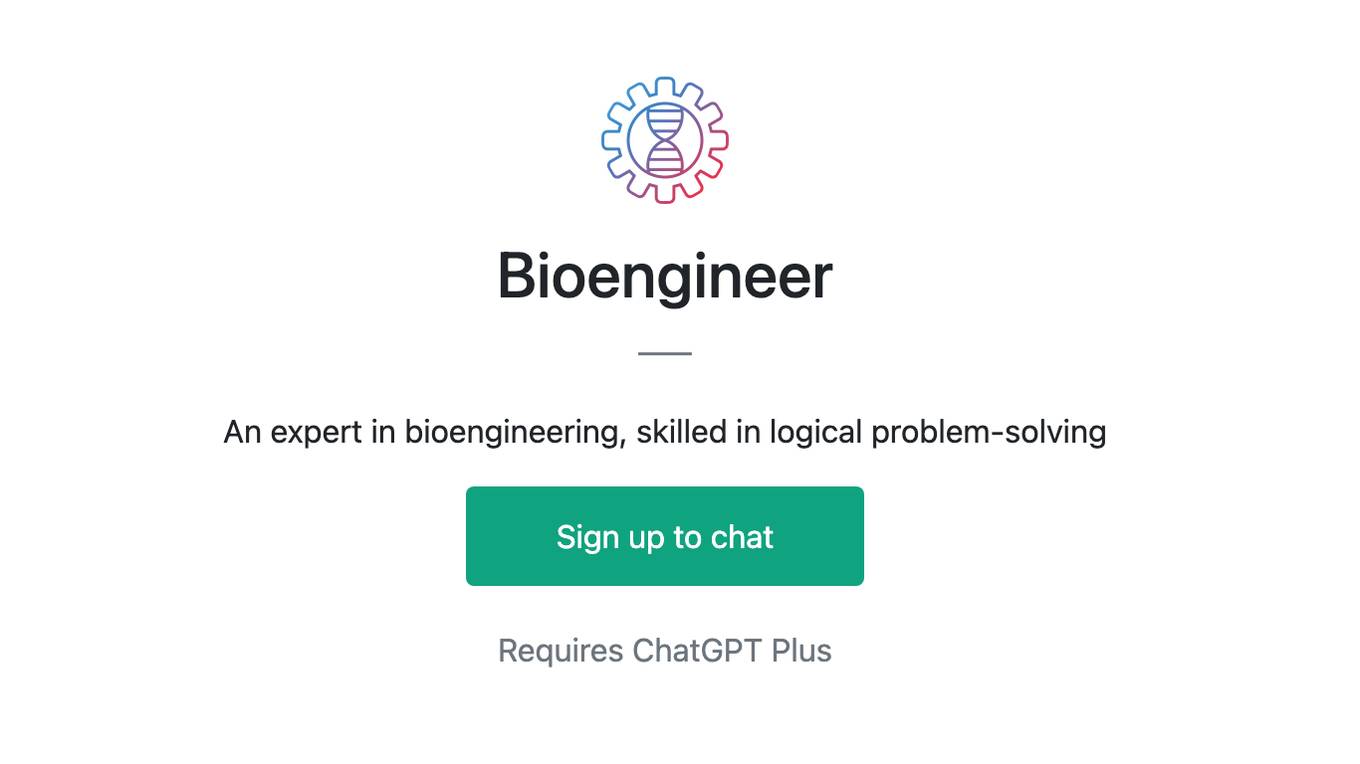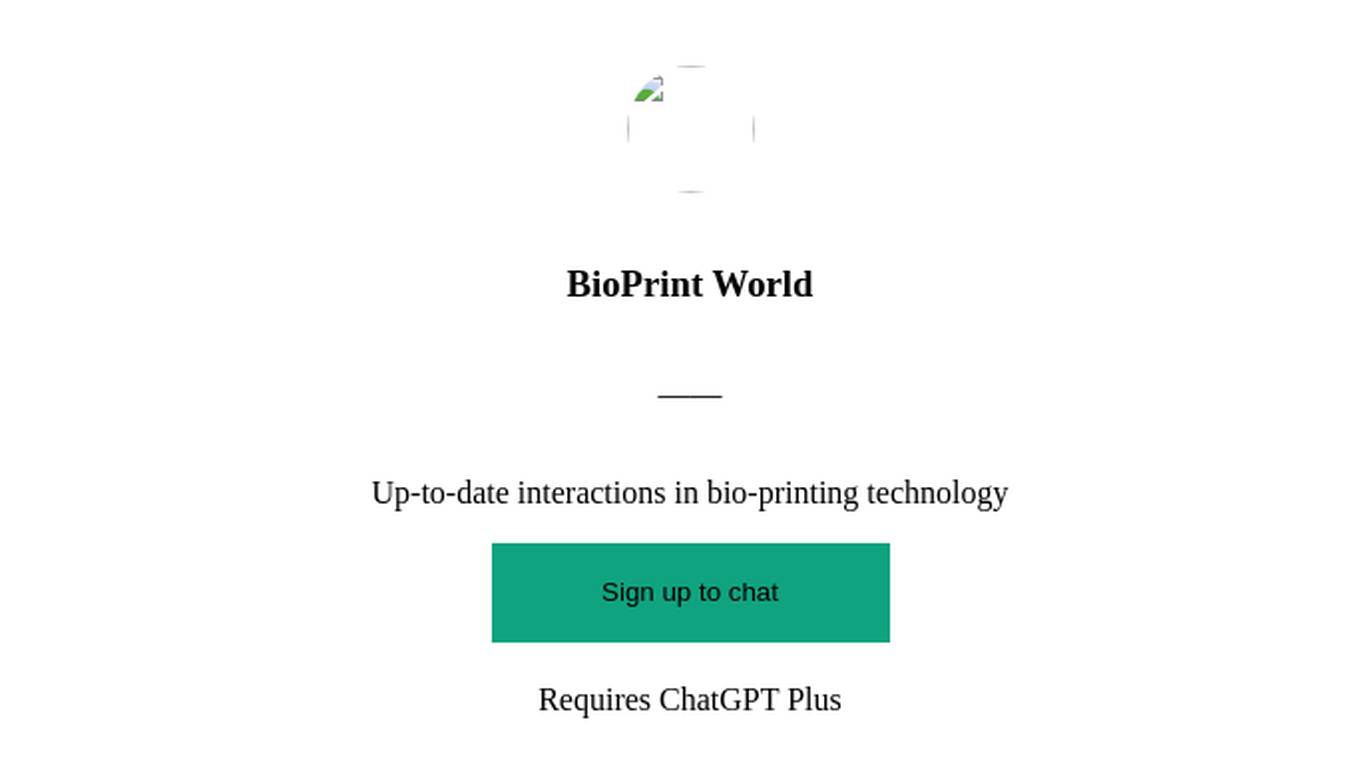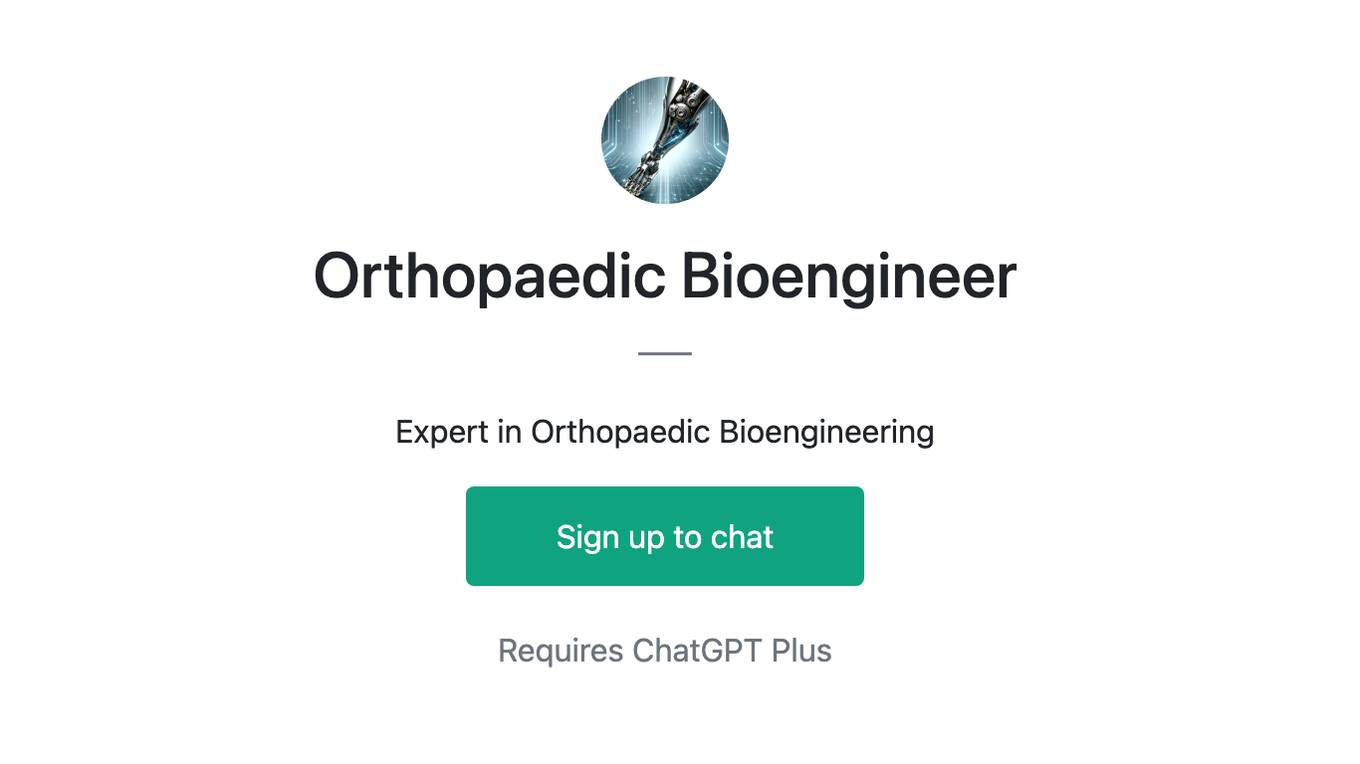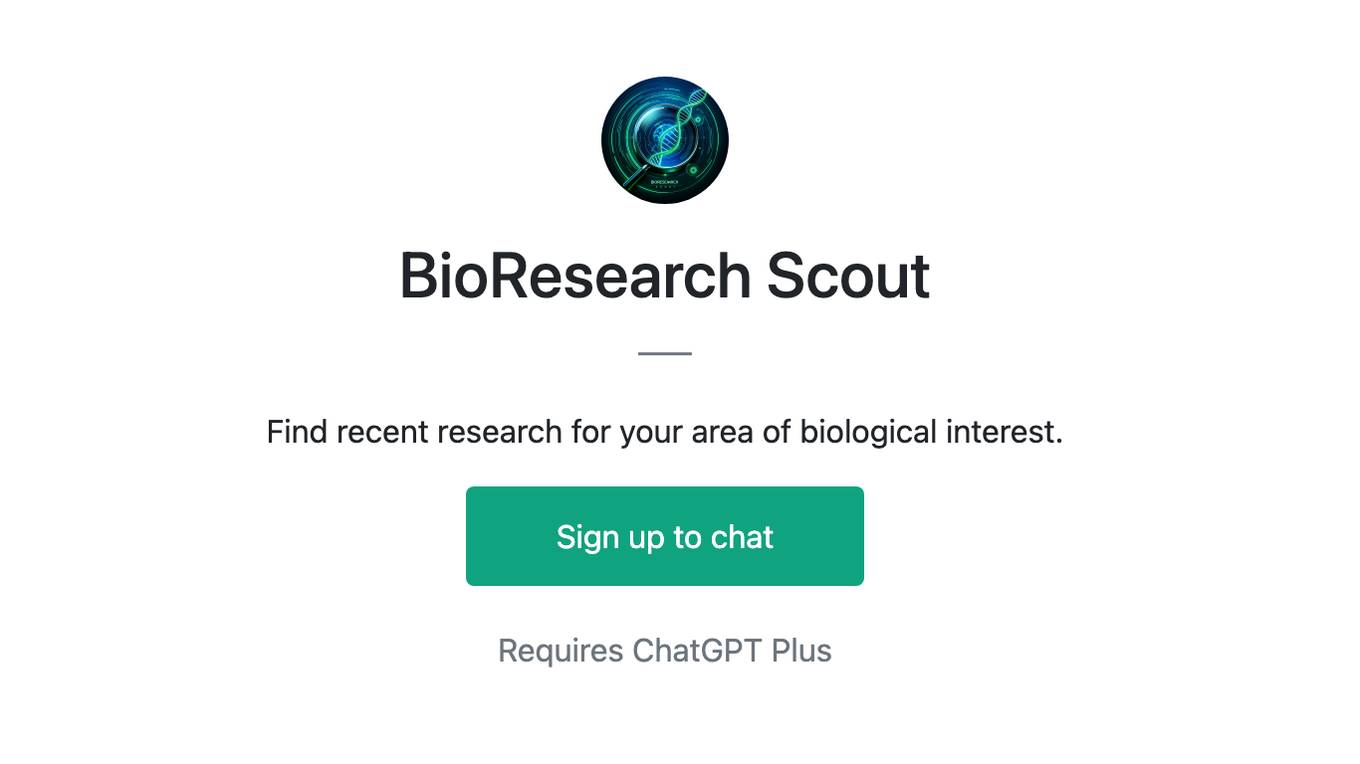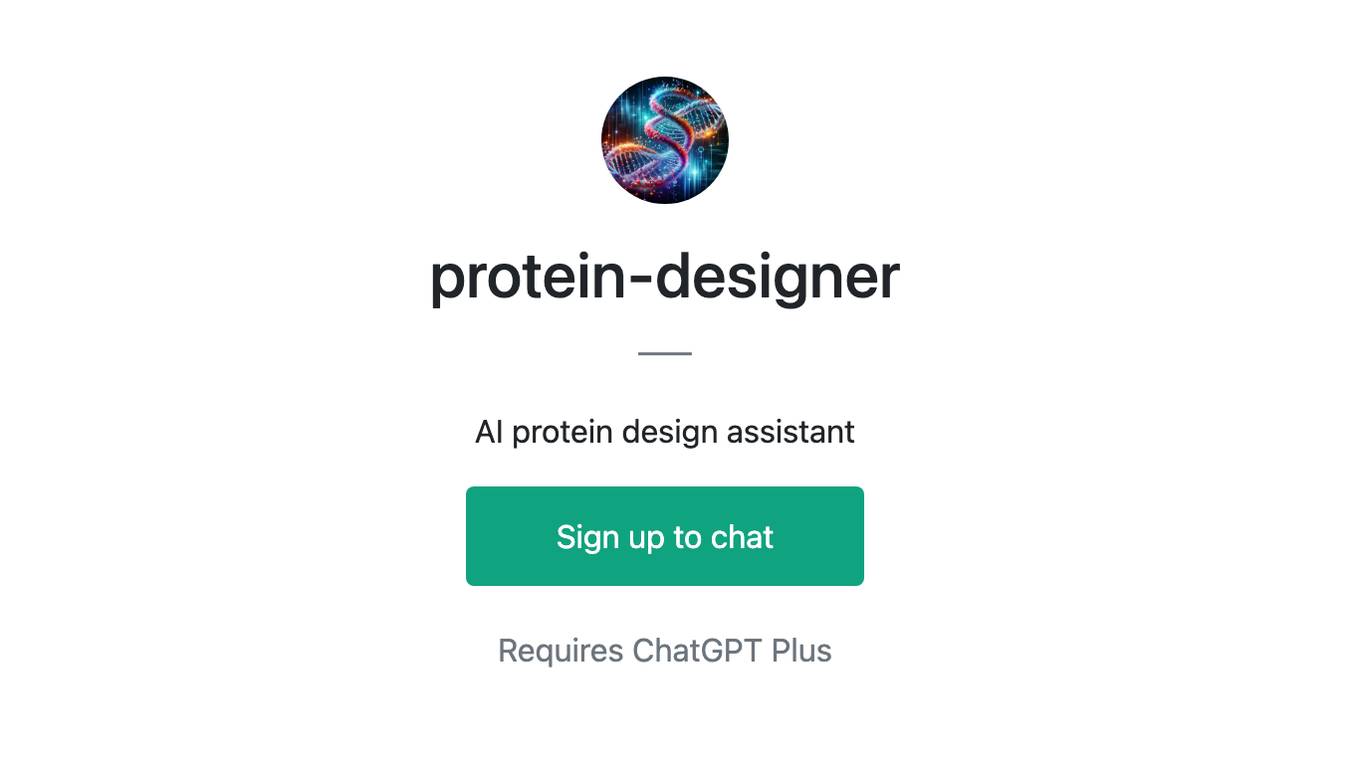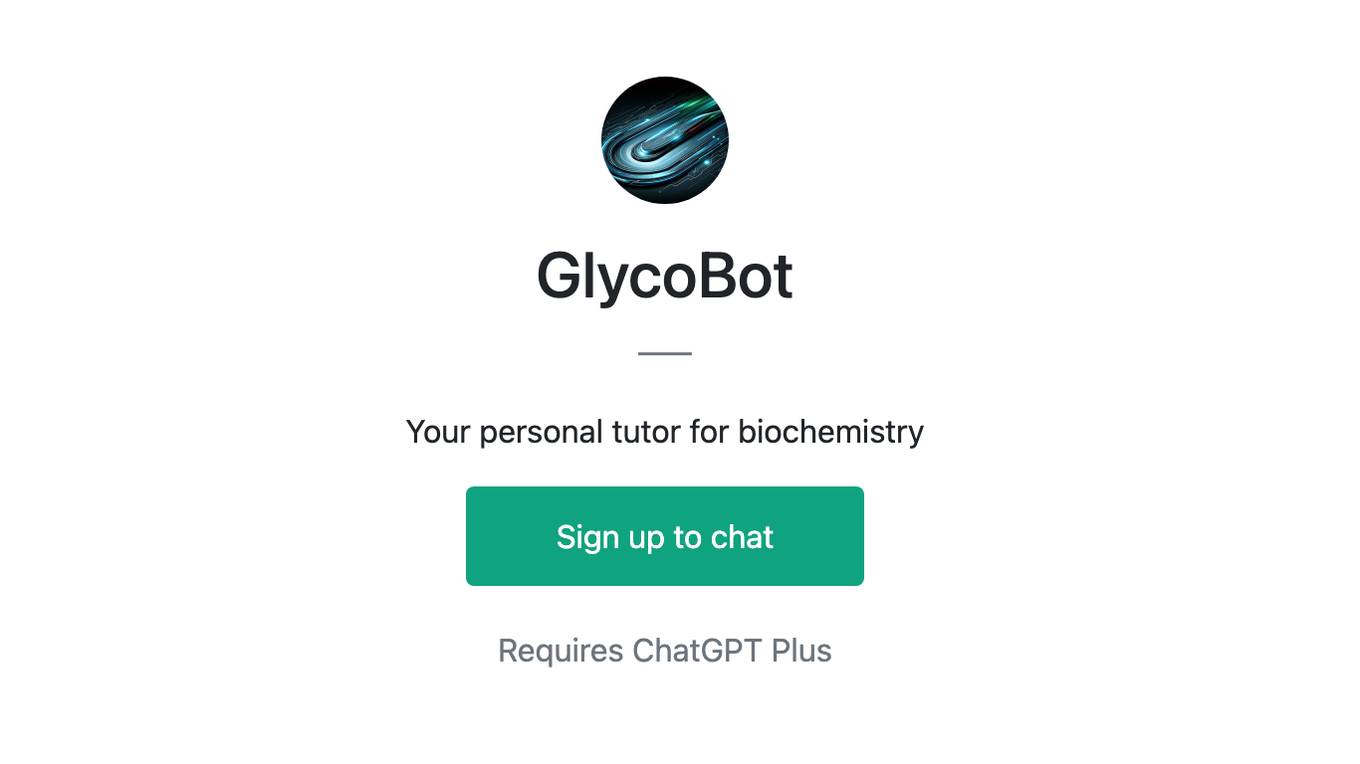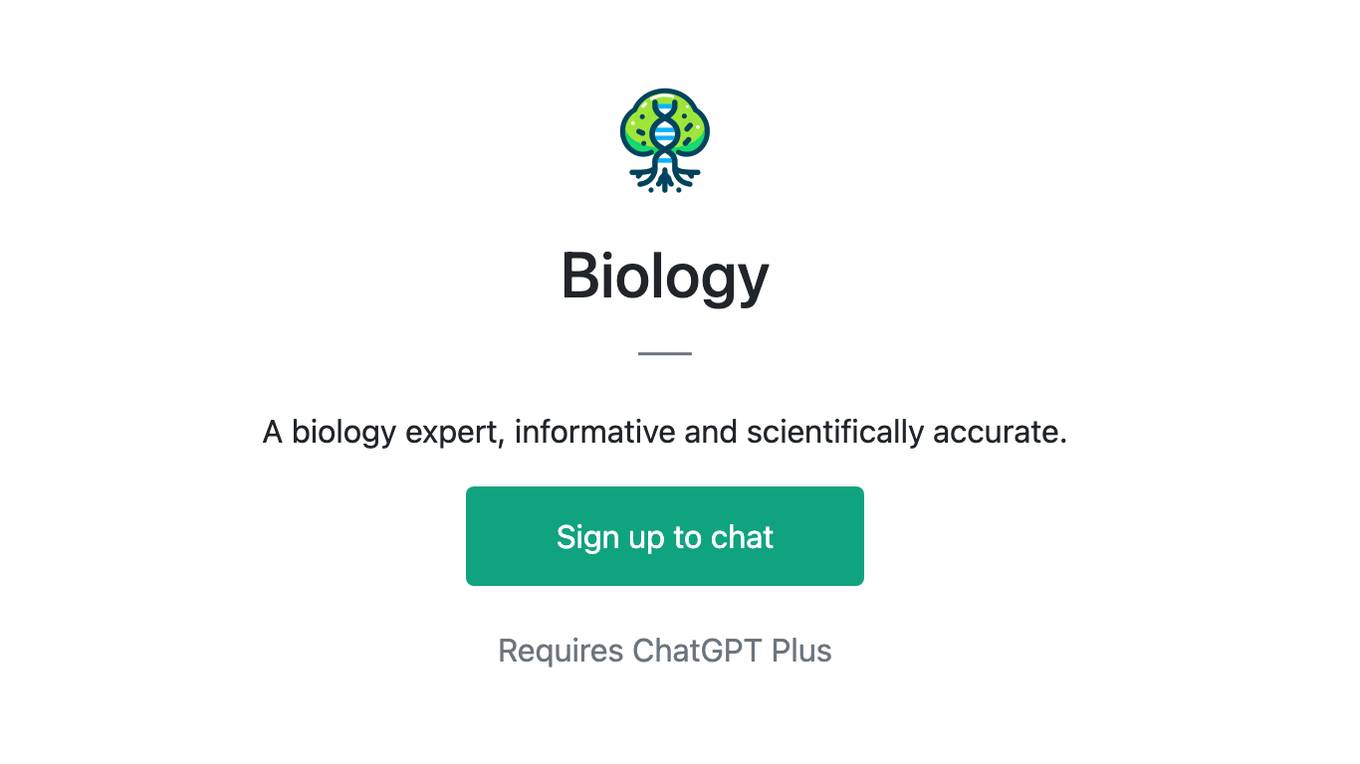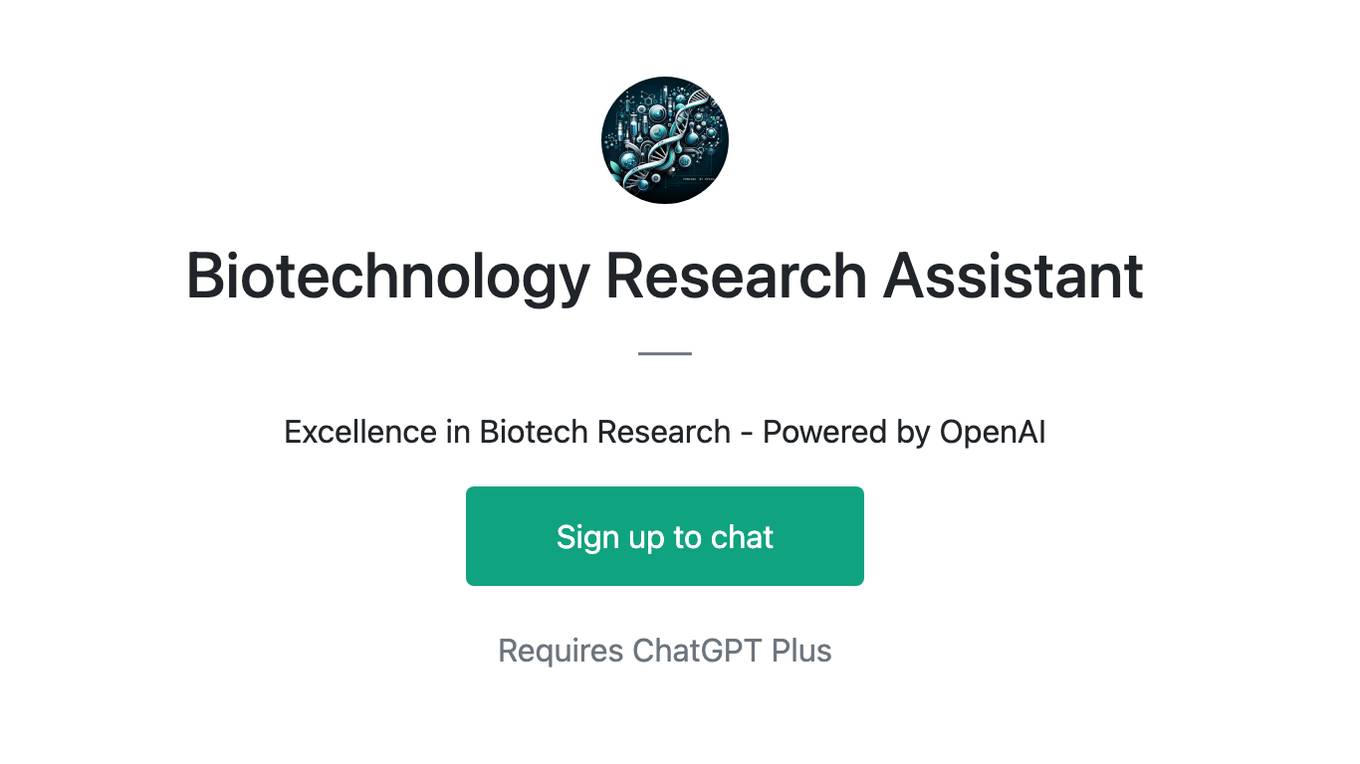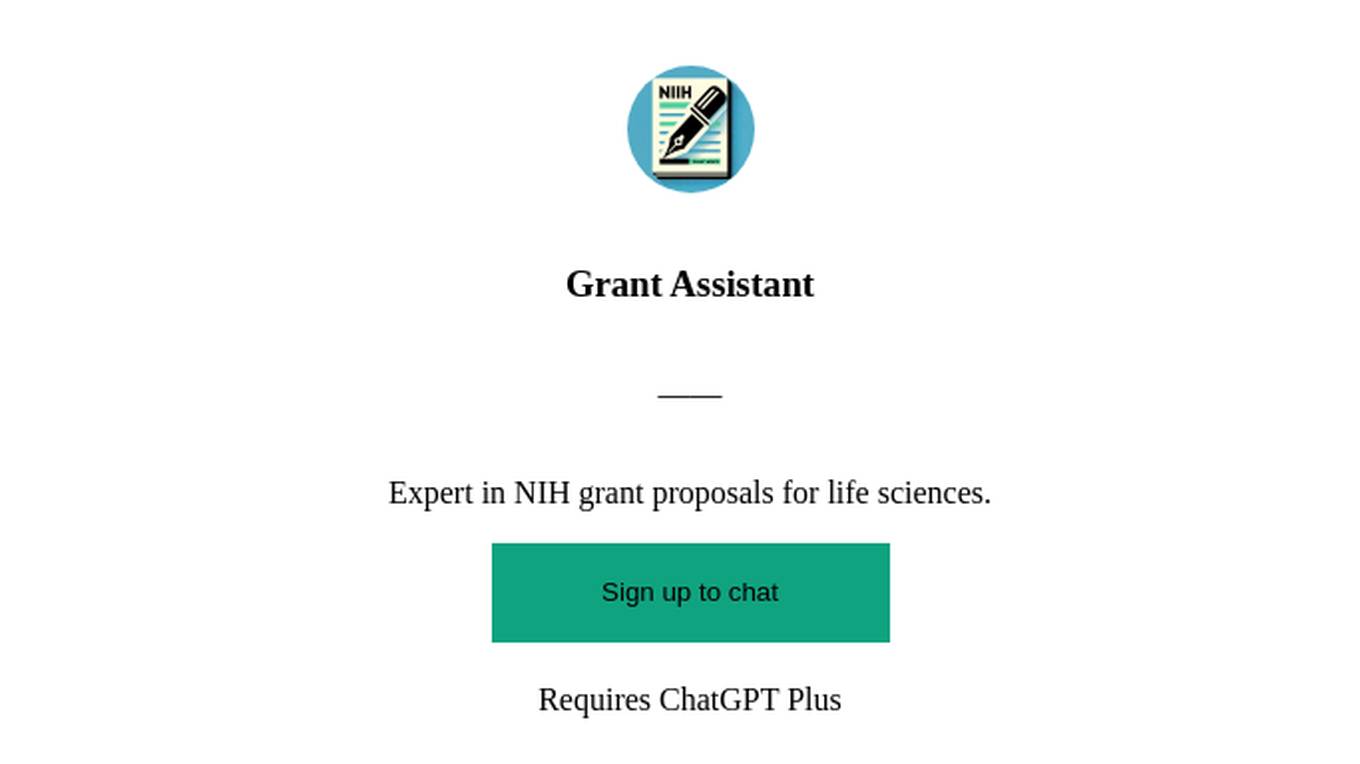Best AI tools for< Biomedical Device Engineer >
Infographic
20 - AI tool Sites
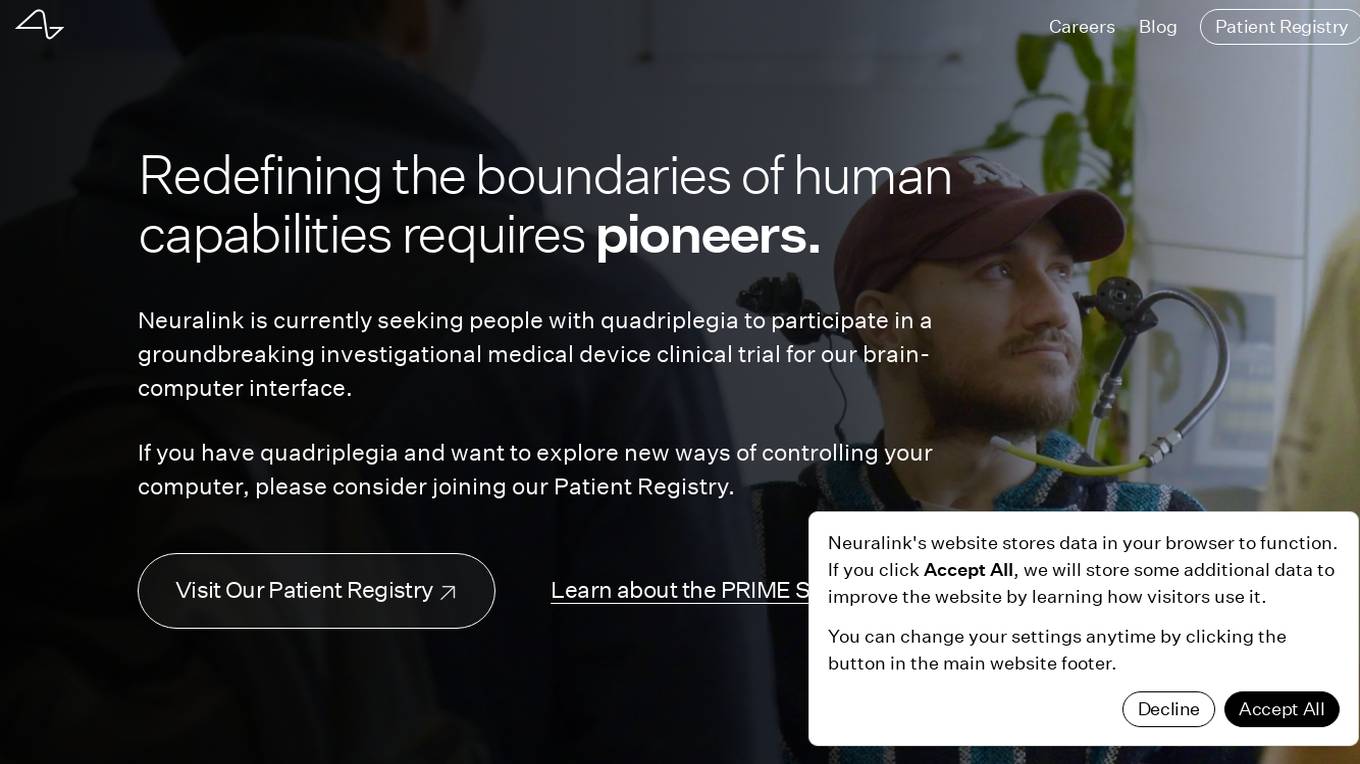
Neuralink
Neuralink is a pioneering brain-computer interface (BCI) application that aims to redefine human capabilities by creating a generalized brain interface to restore autonomy to individuals with unmet medical needs. The application focuses on developing fully implantable BCIs that allow users, particularly those with quadriplegia, to control computers and mobile devices using their thoughts. Neuralink's innovative technology includes advanced chips, biocompatible enclosures, and surgical robots for precise implantation. The application prioritizes safety, accessibility, and reliability in its engineering process, with future goals of restoring vision, motor function, and speech capabilities.
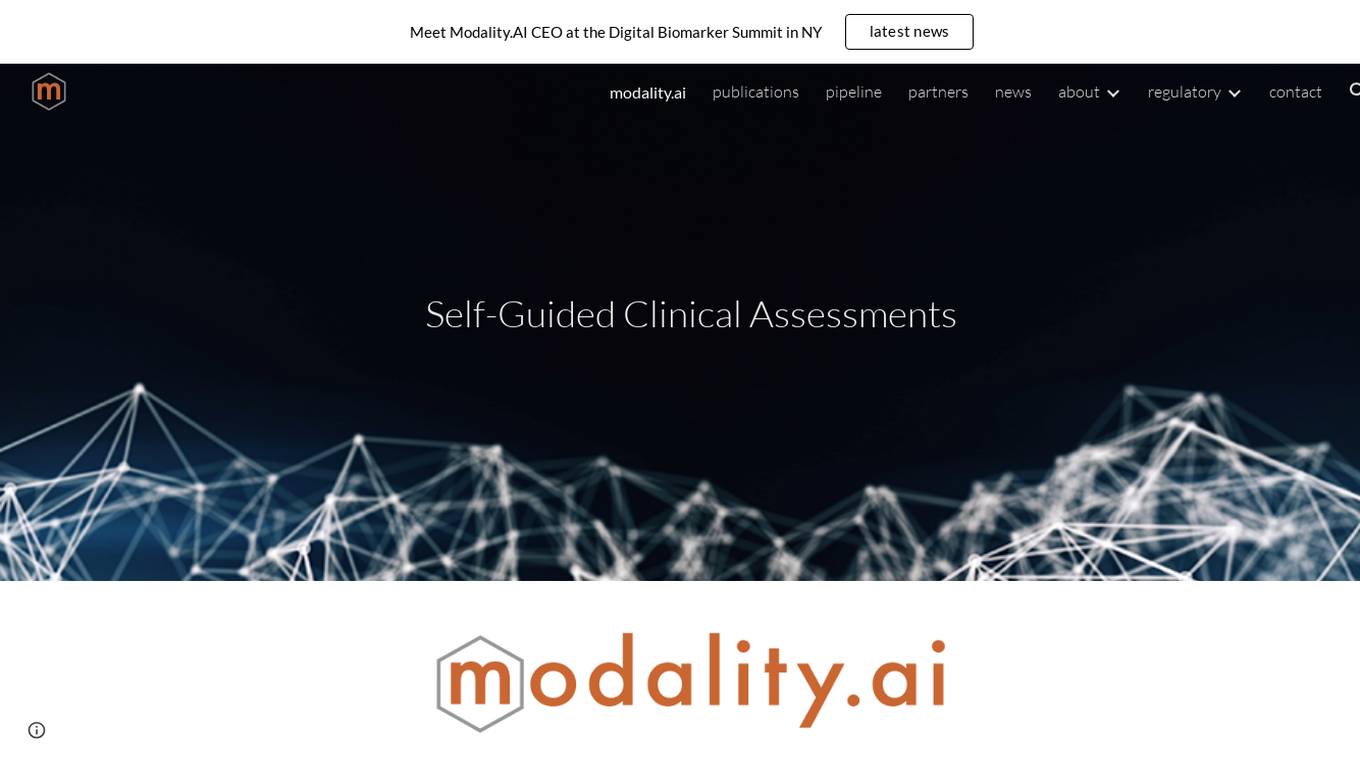
Modality.AI
Modality.AI is an AI application that has developed an automated, clinically validated system to assess neurological and psychiatric states both in clinic and remotely. The platform utilizes conversational AI to monitor conditions accurately and consistently, allowing researchers and clinicians to review data in near real-time and monitor treatment response over time. Modality.AI collaborates with world-class AI/Machine Learning experts and leading institutions to provide a HIPAA-compliant system for assessing various indications such as ALS, Parkinson's, depression, autism, Huntington's Disease, schizophrenia, and mild cognitive impairment. The platform enables convenient monitoring at home through streaming and analysis of speech and facial responses, without the need for special software or apps. Modality.AI is accessible on various devices with a browser, webcam, and microphone, offering a new approach to efficient and cost-effective clinical trials.
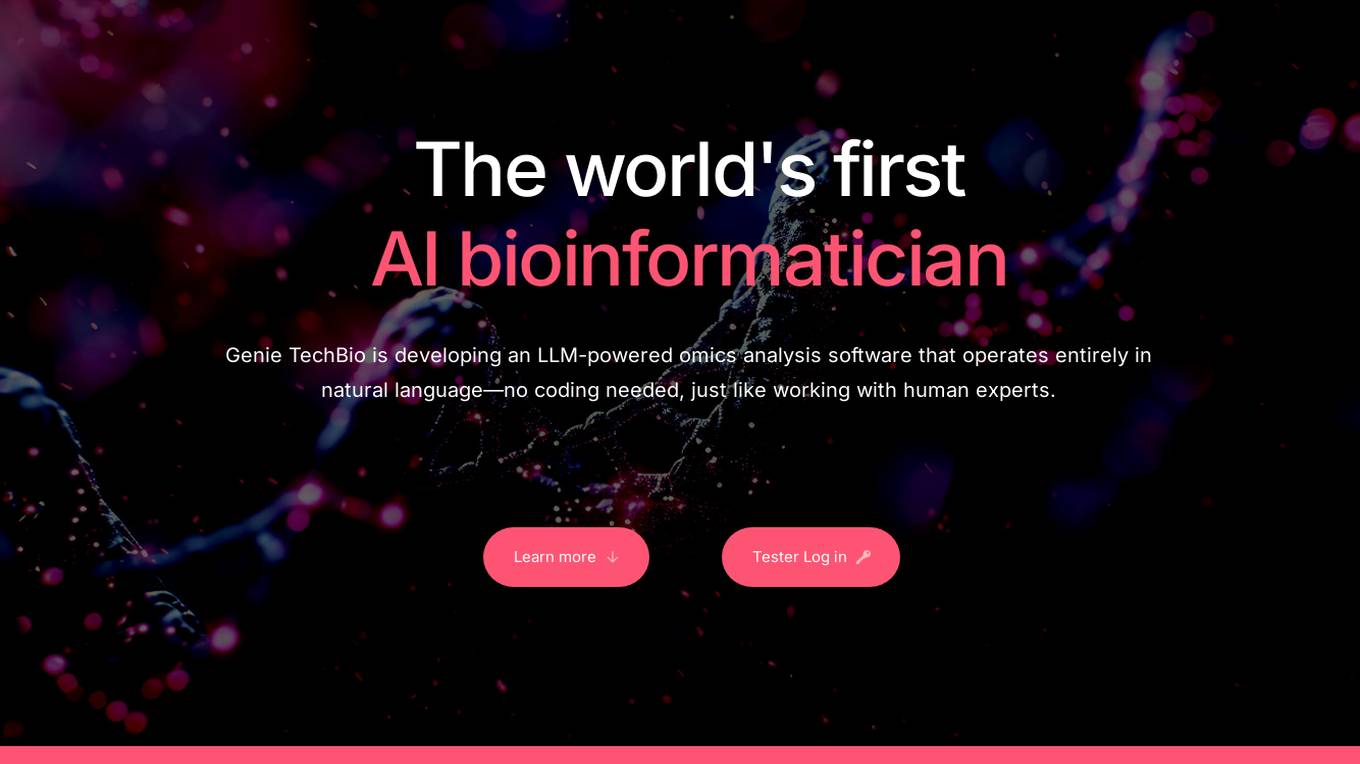
Genie TechBio
Genie TechBio is the world's first AI bioinformatician, offering an LLM-powered omics analysis software that operates entirely in natural language, eliminating the need for coding. Researchers can effortlessly analyze extensive datasets by engaging in a conversation with Genie, receiving recommendations for analysis pipelines, and obtaining results. The tool aims to accelerate biomedical research and empower scientists with newfound data analysis capabilities.
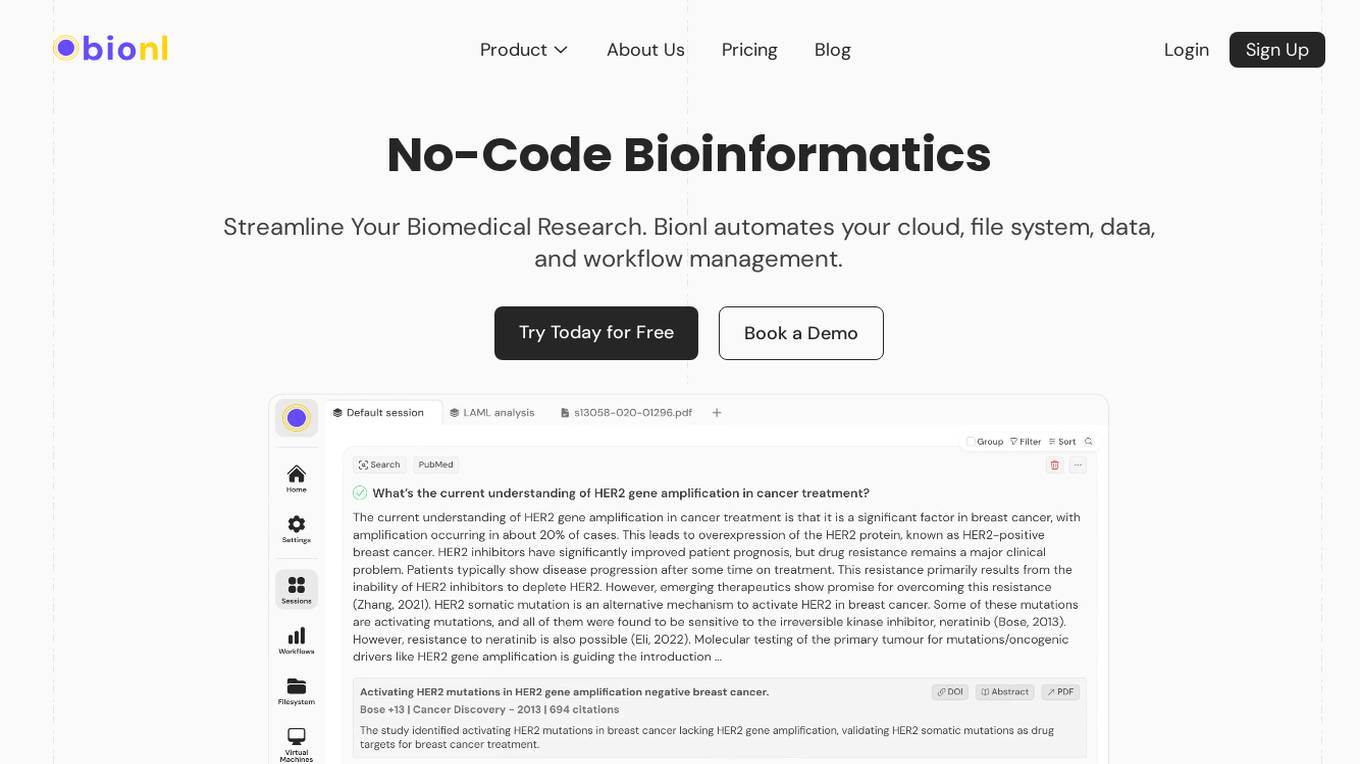
Bionl
Bionl is a no-code bioinformatics platform designed to streamline biomedical research for researchers and scientists. It offers a full workspace with features such as bioinformatics pipelines customization, GenAI for data analysis, AI-powered literature search, PDF analysis, and access to public datasets. Bionl aims to automate cloud, file system, data, and workflow management for efficient and precise analyses. The platform caters to Pharma and Biotech companies, academic researchers, and bioinformatics CROs, providing powerful tools for genetic analysis and speeding up research processes.
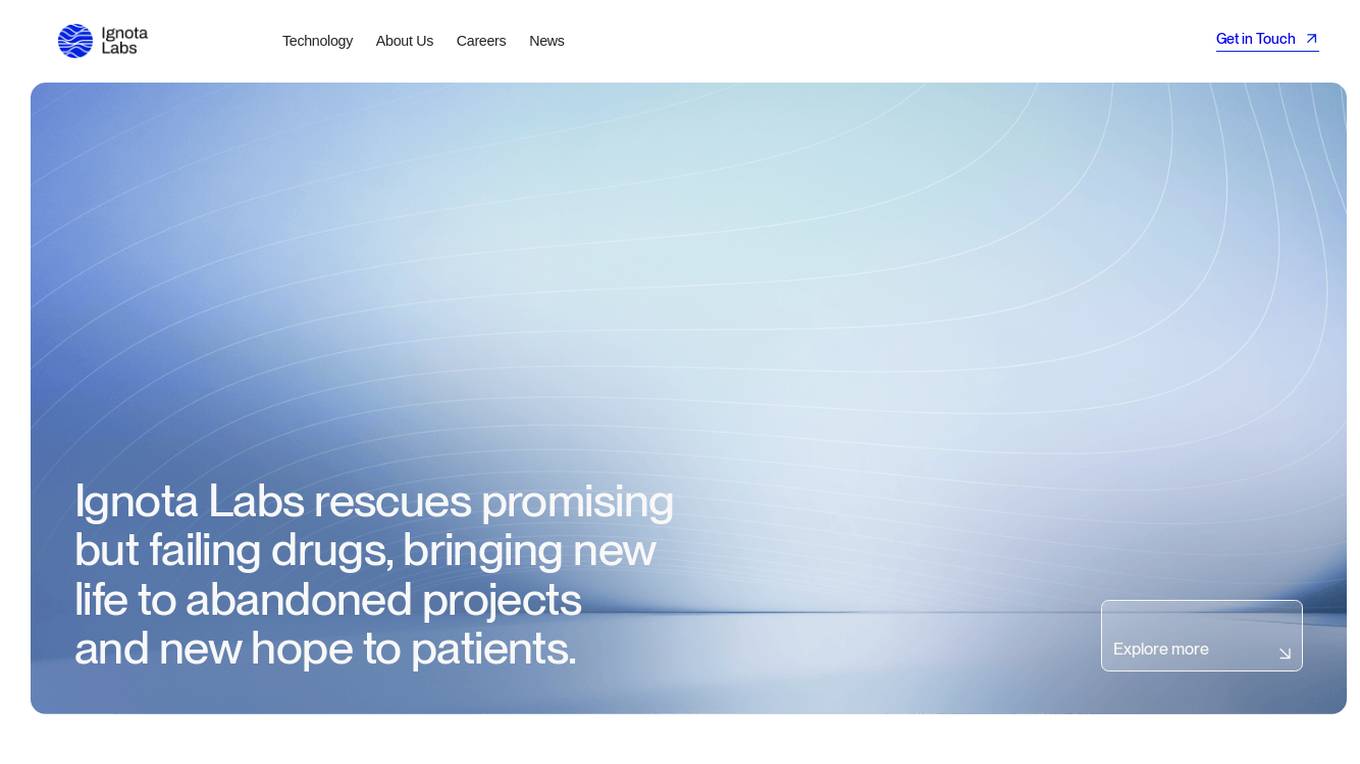
Ignota Labs
Ignota Labs is a technology company focused on rescuing failing drugs and bringing new life to abandoned projects, ultimately providing hope to patients. The company utilizes a proprietary AI model, SAFEPATH, which applies deep learning to bioinformatics and cheminformatics datasets to solve drug safety issues. Ignota Labs aims to identify promising drug targets, address safety problems in clinical trials, and accelerate the delivery of therapeutically effective drugs to patients.
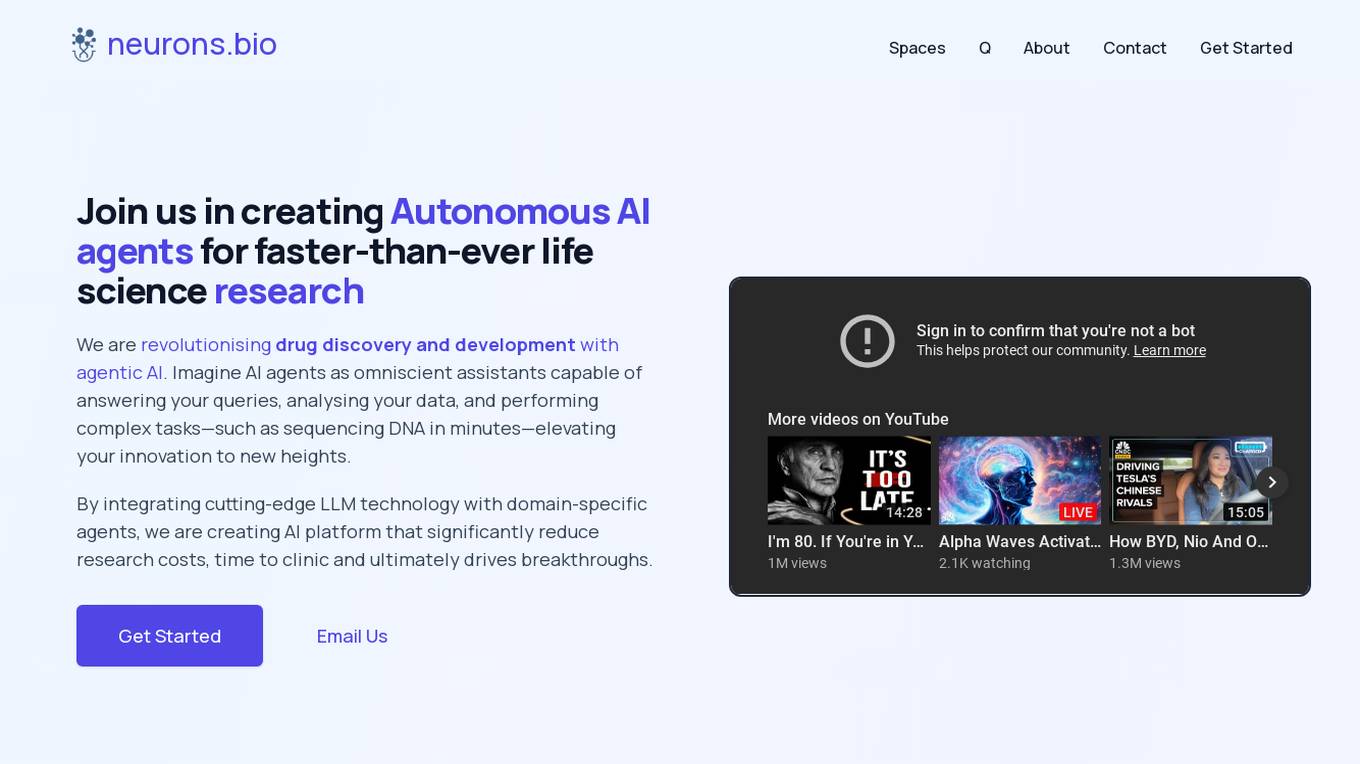
neurons.bio
neurons.bio is an AI application that offers a unique collection of over 100 AI agents designed for drug development, medicine, and life science research. These agents perform specific tasks efficiently, retrieve data from various sources, and provide insights to accelerate research processes. The platform aims to revolutionize drug discovery and development by integrating cutting-edge LLM technology with domain-specific agents, reducing research costs and time to clinic.
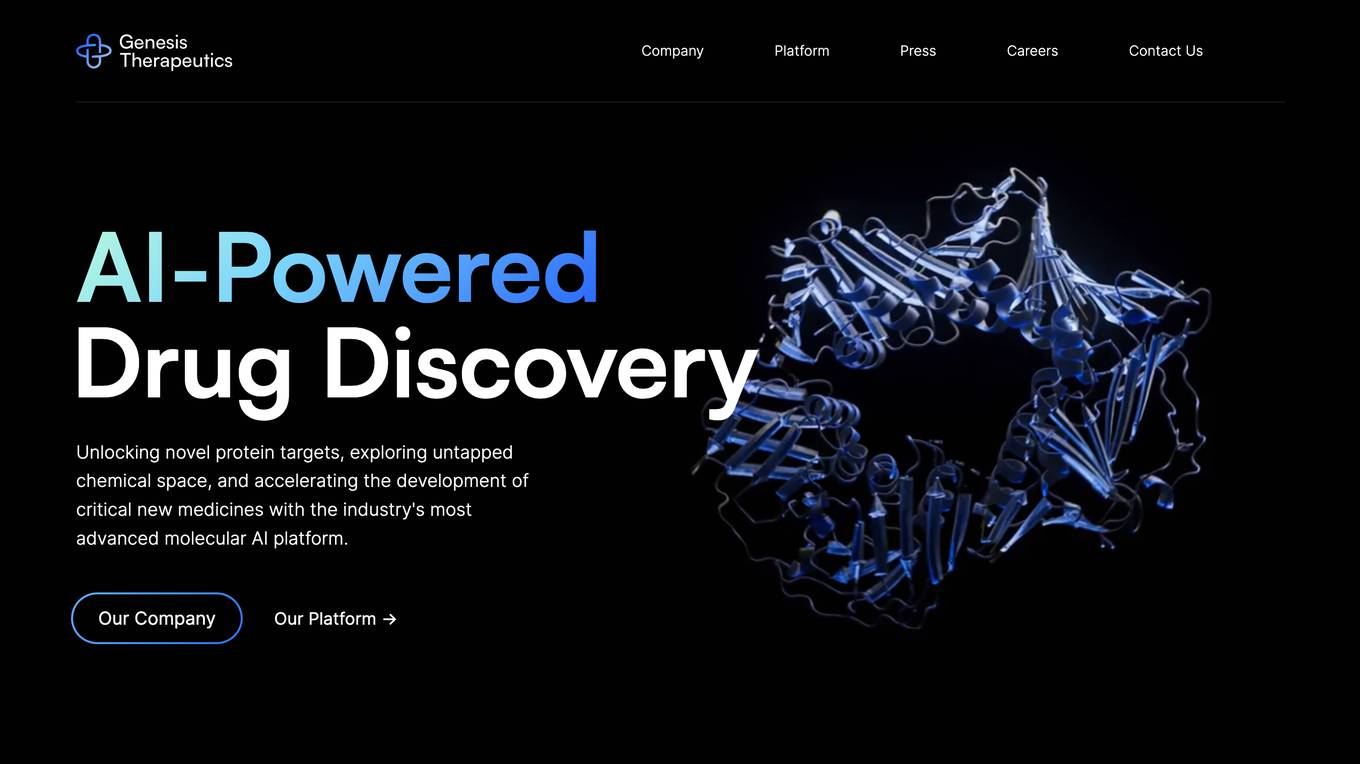
Genesis Therapeutics
Genesis Therapeutics is an AI platform that leverages cutting-edge technology to revolutionize drug discovery and development processes. The platform integrates advanced algorithms and machine learning models to accelerate the identification of novel drug candidates and optimize their properties. By combining computational simulations with experimental data, Genesis Therapeutics offers a comprehensive solution to streamline the drug development pipeline and bring innovative therapies to market faster. The platform is designed to empower researchers and pharmaceutical companies with powerful tools for predicting drug-target interactions, optimizing molecular structures, and prioritizing lead compounds for further investigation.
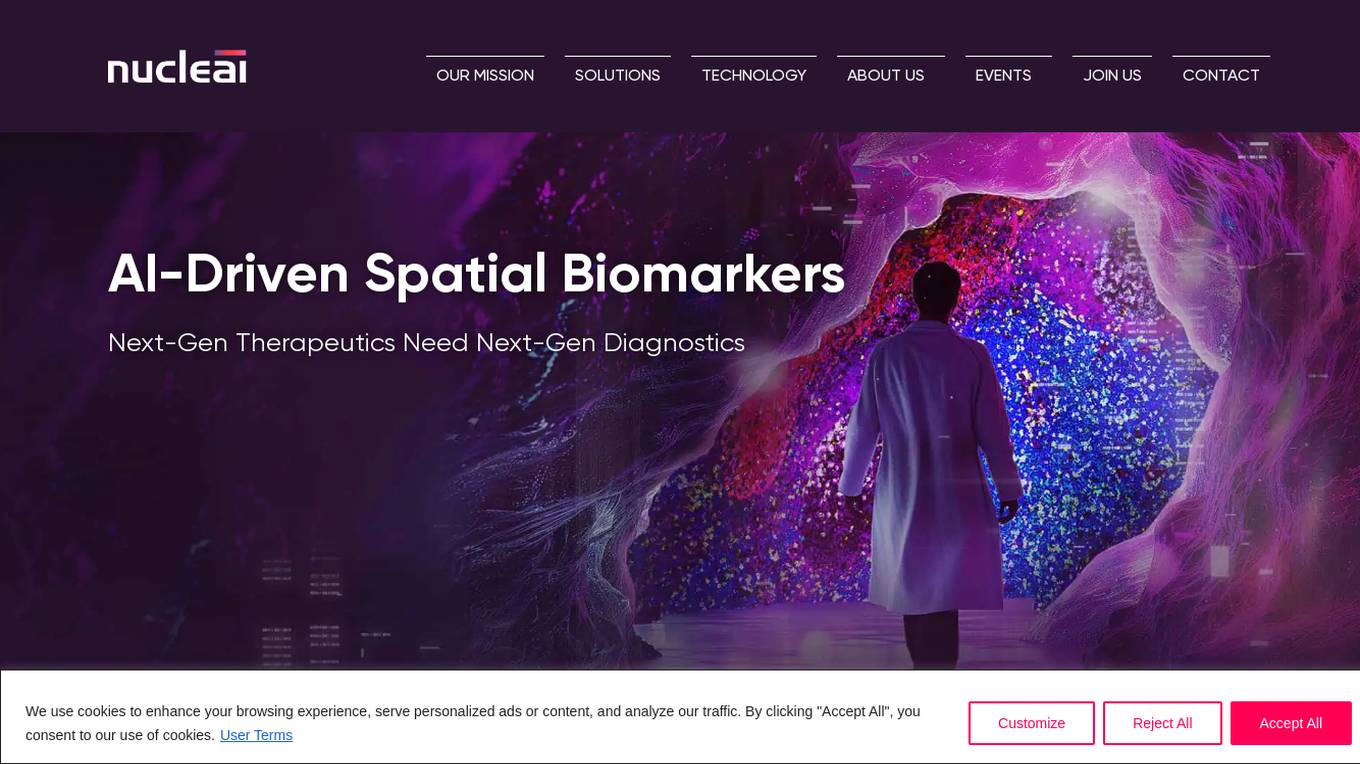
Nucleai
Nucleai is an AI-driven spatial biomarker analysis tool that leverages military intelligence-grade geospatial AI methods to analyze complex cellular interactions in a patient's biopsy. The platform offers a first-of-its-kind multimodal solution by ingesting images from various modalities and delivering actionable insights to optimize biomarker scoring, predict response to therapy, and revolutionize disease diagnosis and treatment.

Exscientia
Exscientia is a technology-driven drug design and development company that combines precision design with integrated experimentation to create more effective medicines for patients faster. They operate at the interfaces of human ingenuity, artificial intelligence (AI), automation, and physical engineering, pioneering the use of AI in drug discovery. Exscientia aims to change the underlying economics of drug discovery by rapidly advancing the best scientific ideas into medicines for patients.
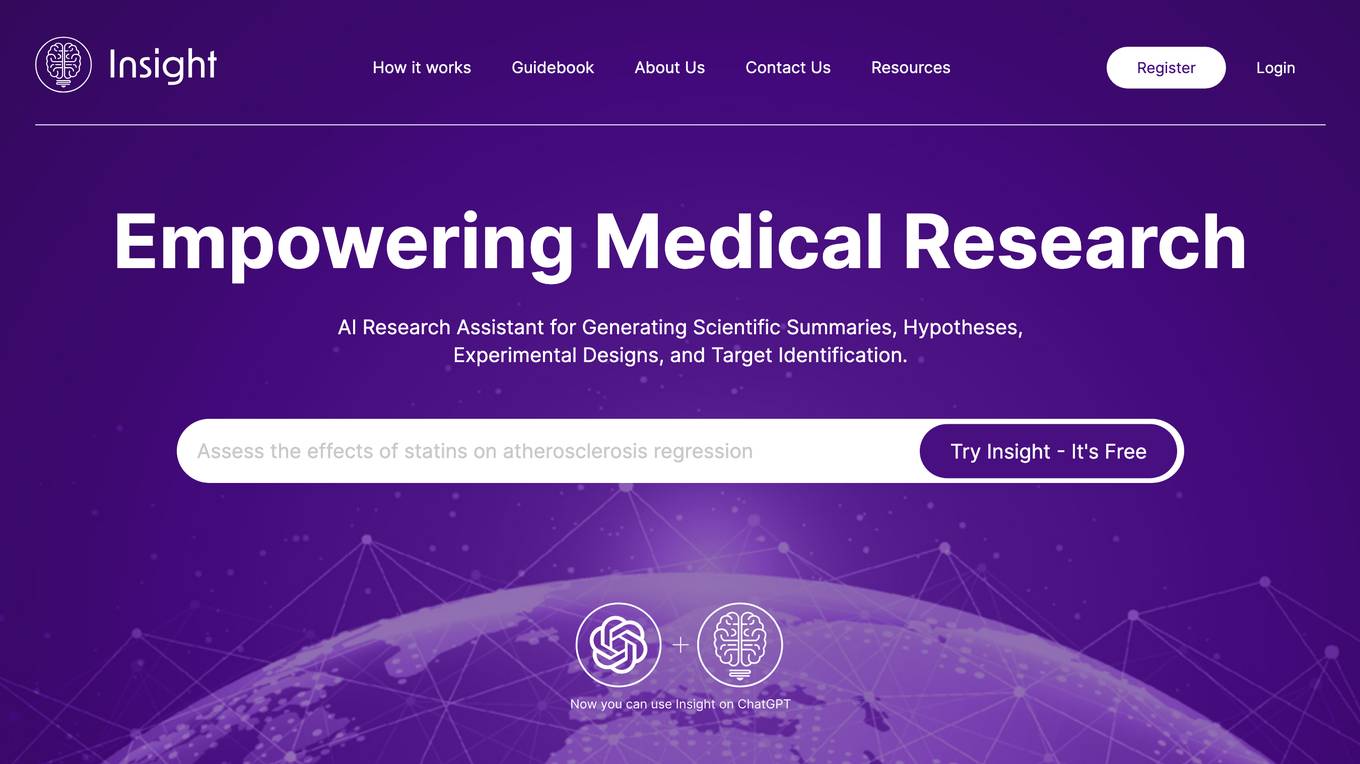
Insight
Insight is an AI-powered medical research tool that serves as a research assistant for generating scientific summaries, hypotheses, experimental designs, and target identification. It empowers scientists to navigate literature, formulate hypotheses, and design experiments by utilizing peer-reviewed databases to provide reliable outputs. With integrated features like NIH PubMed access, NIH Reporter insights, and MYGENE & MYVARIANT deep dives, Insight streamlines the research process and accelerates discoveries in the medical field.
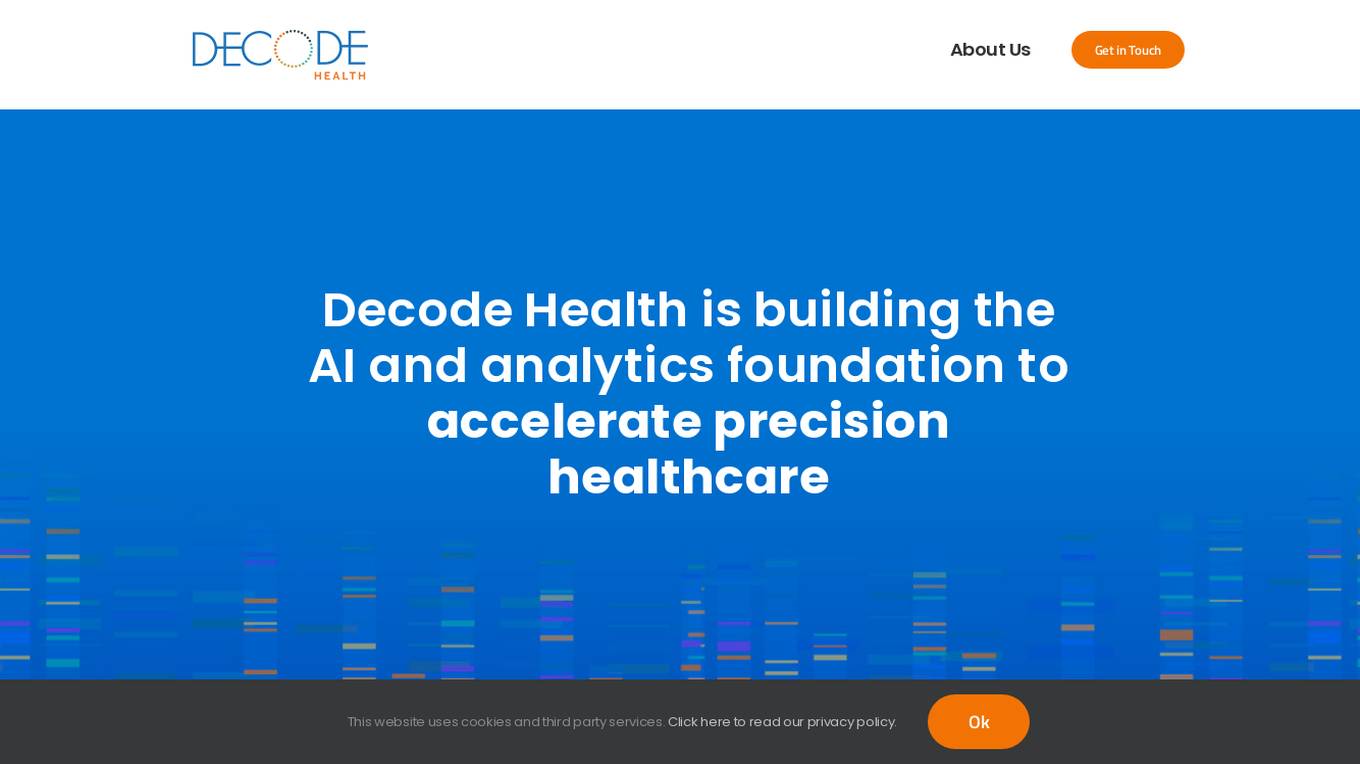
Decode Health
Decode Health is an AI and analytics platform that accelerates precision healthcare by supporting healthcare teams in launching machine learning and advanced analytics projects. The platform collaborates with pharmaceutical companies to enhance patient selection, biomarker identification, diagnostics development, data asset creation, and analysis. Decode Health offers modules for biomarker discovery, patient recruitment, next-generation sequencing, data analysis, and clinical decision support. The platform aims to provide fast, accurate, and actionable insights for acute and chronic disease management. Decode Health's custom-built modules are designed to work together to solve complex data problems efficiently.
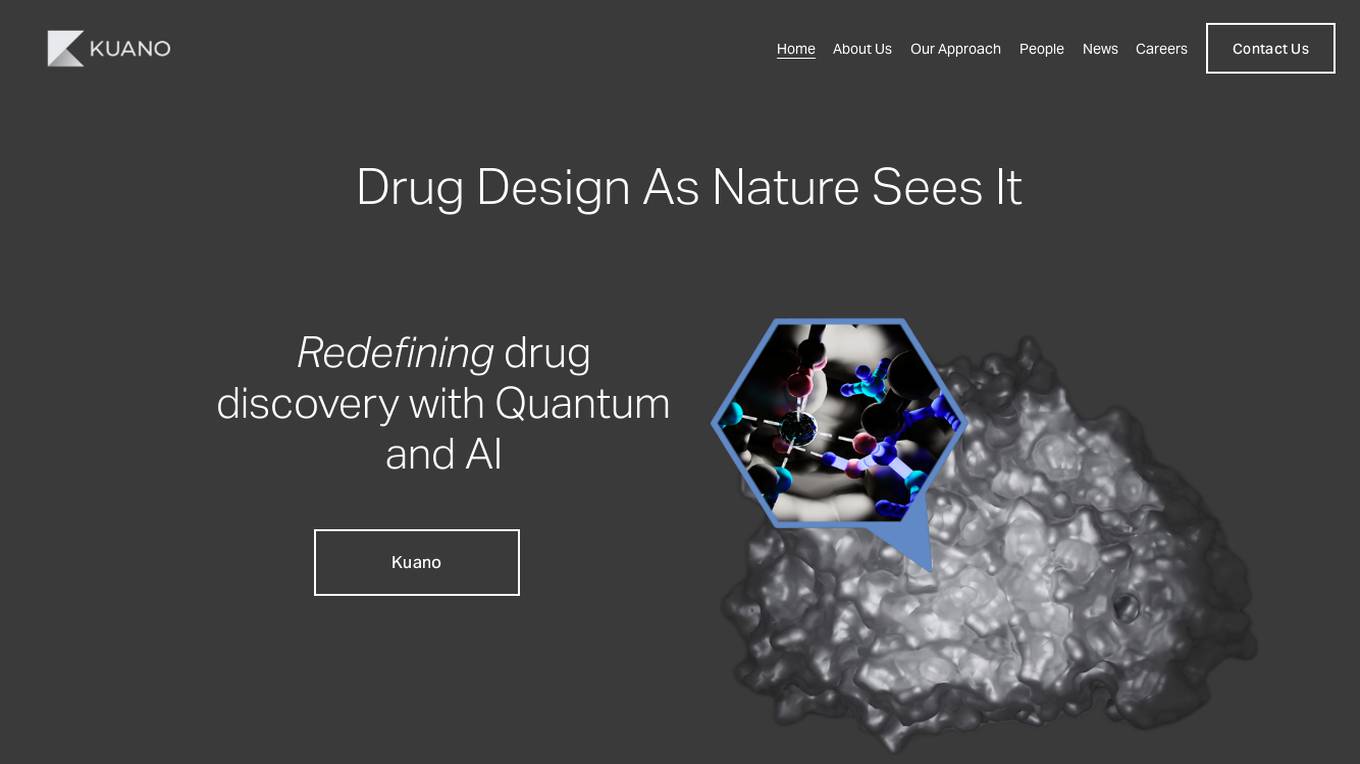
Kuano
Kuano is an AI tool that focuses on redefining drug discovery using Quantum and AI technologies. The platform offers world-class scientific expertise in quantum physics, AI, and medicinal chemistry to revolutionize the drug design process. Kuano aims to leverage cutting-edge technologies to accelerate the discovery of new drugs and improve healthcare outcomes.
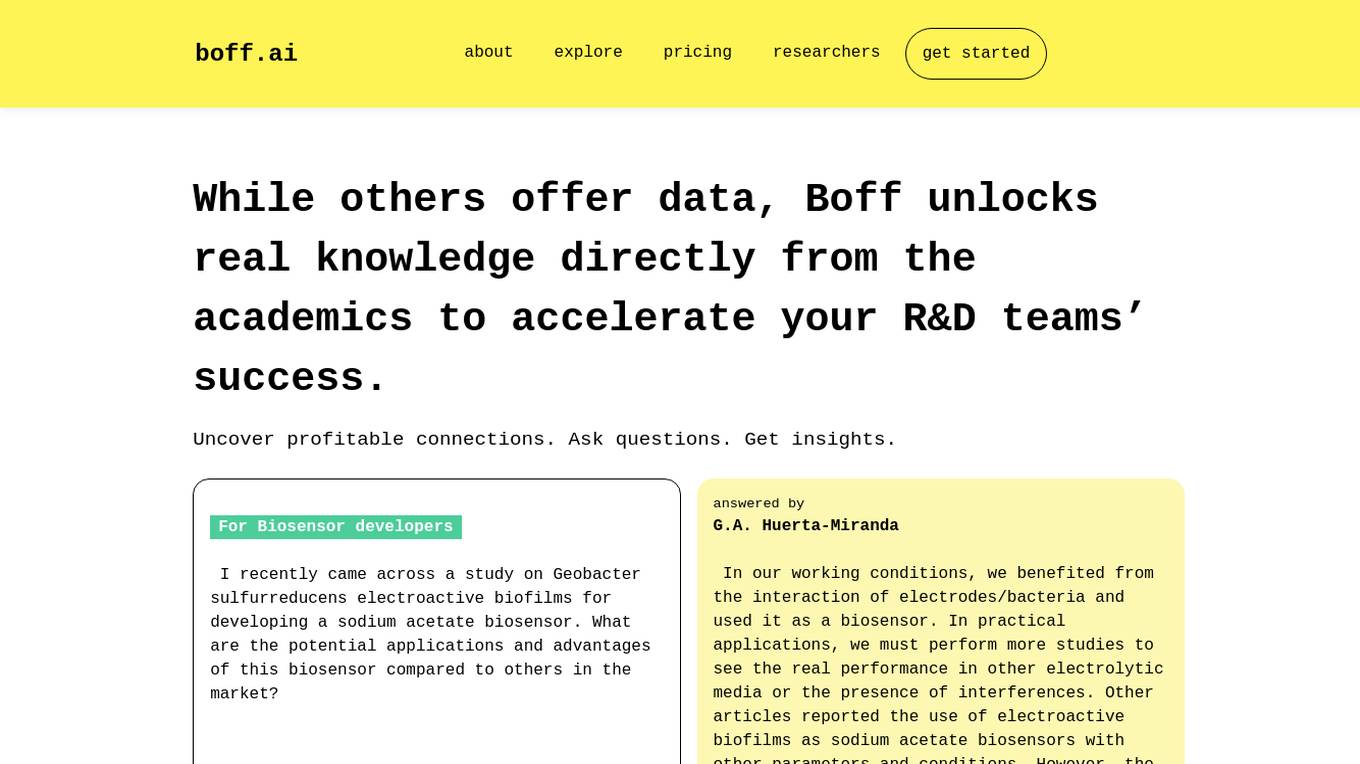
Boff.ai
Boff.ai is an AI tool that connects professionals with academia to unlock opportunities and funding for research and development teams. It helps users ask specific questions across various topics and sources replies from experts in the field. The platform ensures privacy and focuses on solutions required, making it a trusted resource for 30,000 academics and R&D professionals.
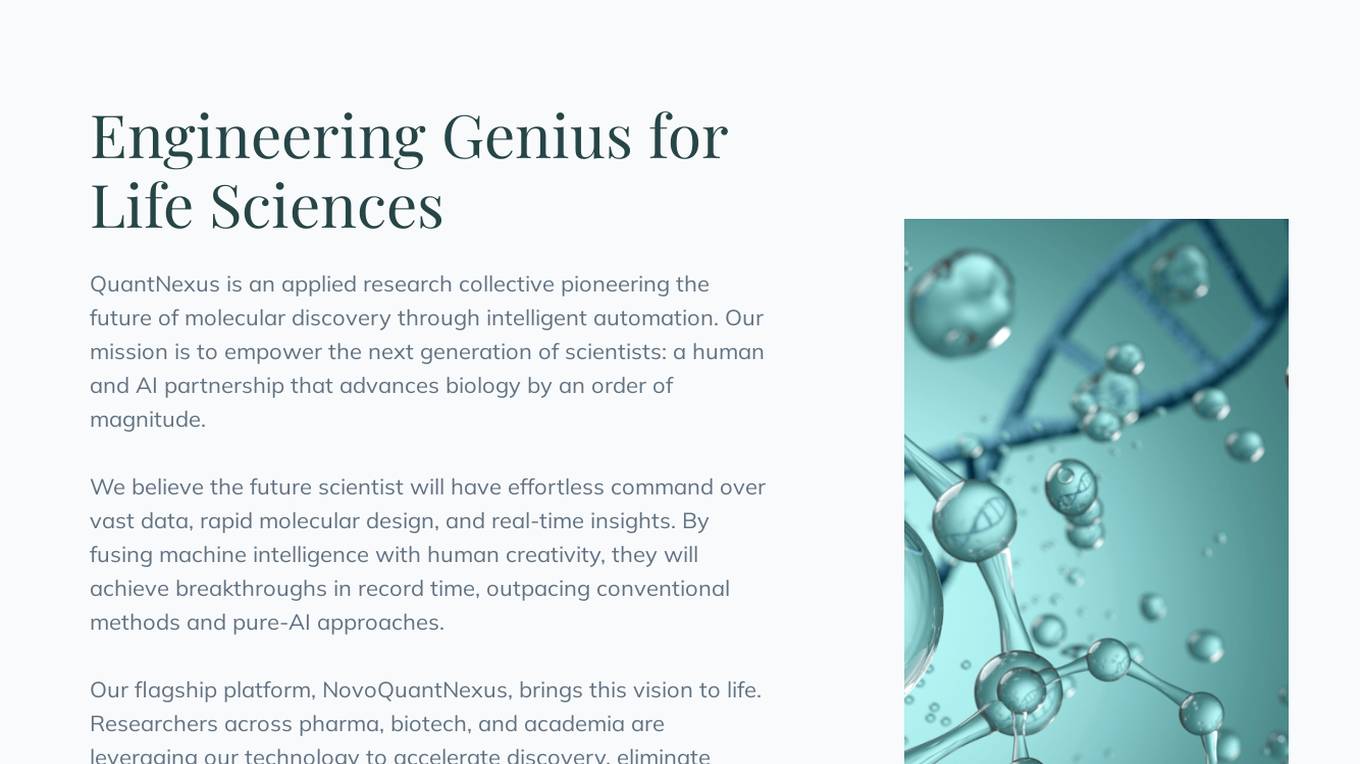
QuantNexus
QuantNexus is an applied research collective that pioneers the future of molecular discovery through intelligent automation. Their mission is to empower the next generation of scientists by creating a human and AI partnership that advances biology significantly. The platform, NovoQuantNexus, fuses machine intelligence with human creativity to achieve breakthroughs in record time, outpacing conventional methods and pure-AI approaches. Researchers in pharma, biotech, and academia are leveraging this technology to accelerate discovery and redefine possibilities in life sciences.
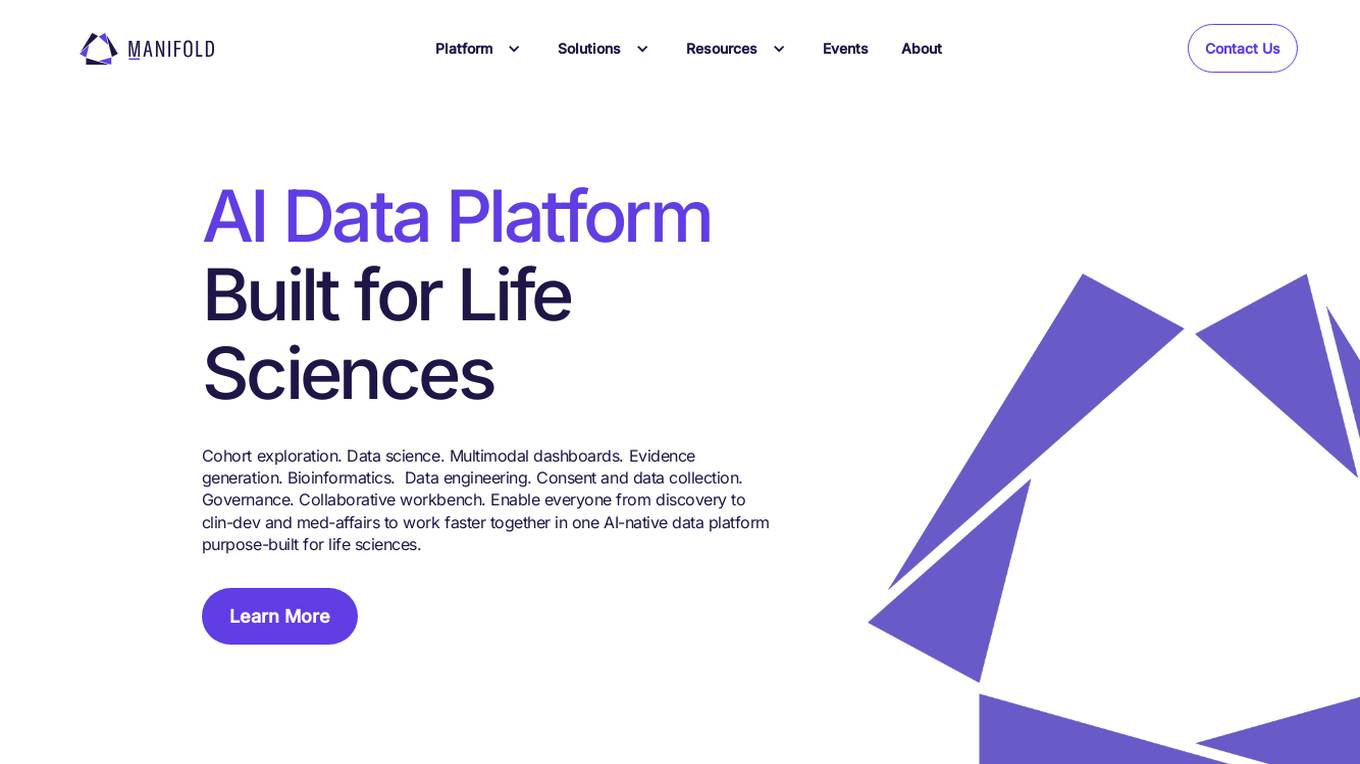
Manifold
Manifold is an AI data platform designed specifically for life sciences. It offers a collaborative workbench, data science tools, AI-powered cohort exploration, batch bioinformatics, data dashboards, data engineering solutions, access control, and more. The platform aims to enable faster collaboration and research in the life sciences field by providing a comprehensive suite of tools and features. Trusted by leading institutions, Manifold helps streamline data collection, analysis, and collaboration to accelerate scientific research.
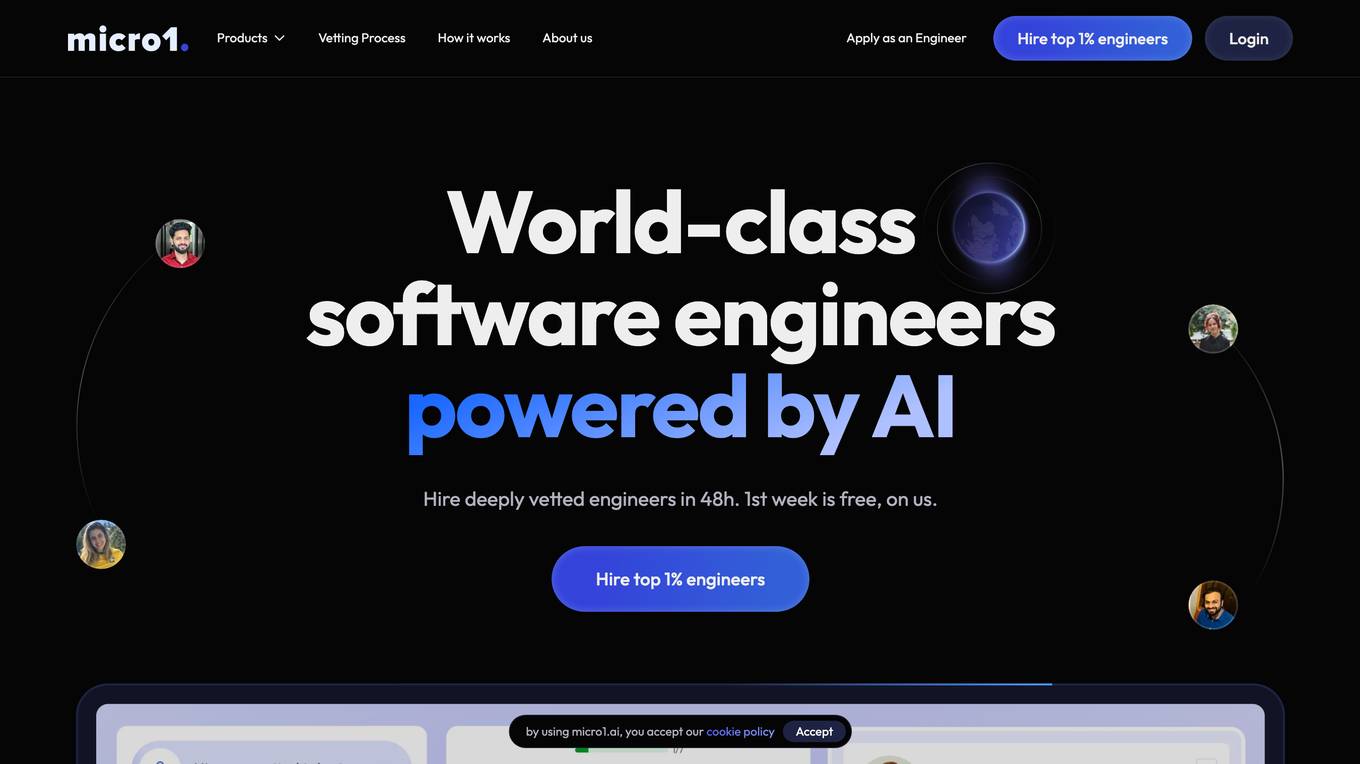
micro1
micro1 is an AI recruitment engine designed to hire top global talent efficiently. It utilizes human data produced by subject matter experts to provide end-to-end post-training services. The platform offers a Zara AI recruiter agent to identify and hire the best talent on earth, catering to various industries such as tech startups, staffing agencies, and enterprises. With features like sourcing and vetting candidates, seamless onboarding, and high-quality data training, micro1 aims to streamline the recruitment process and save time and costs for businesses. The platform also provides resources for companies and talent, including case studies, cost savings calculators, and interview preparation tools.
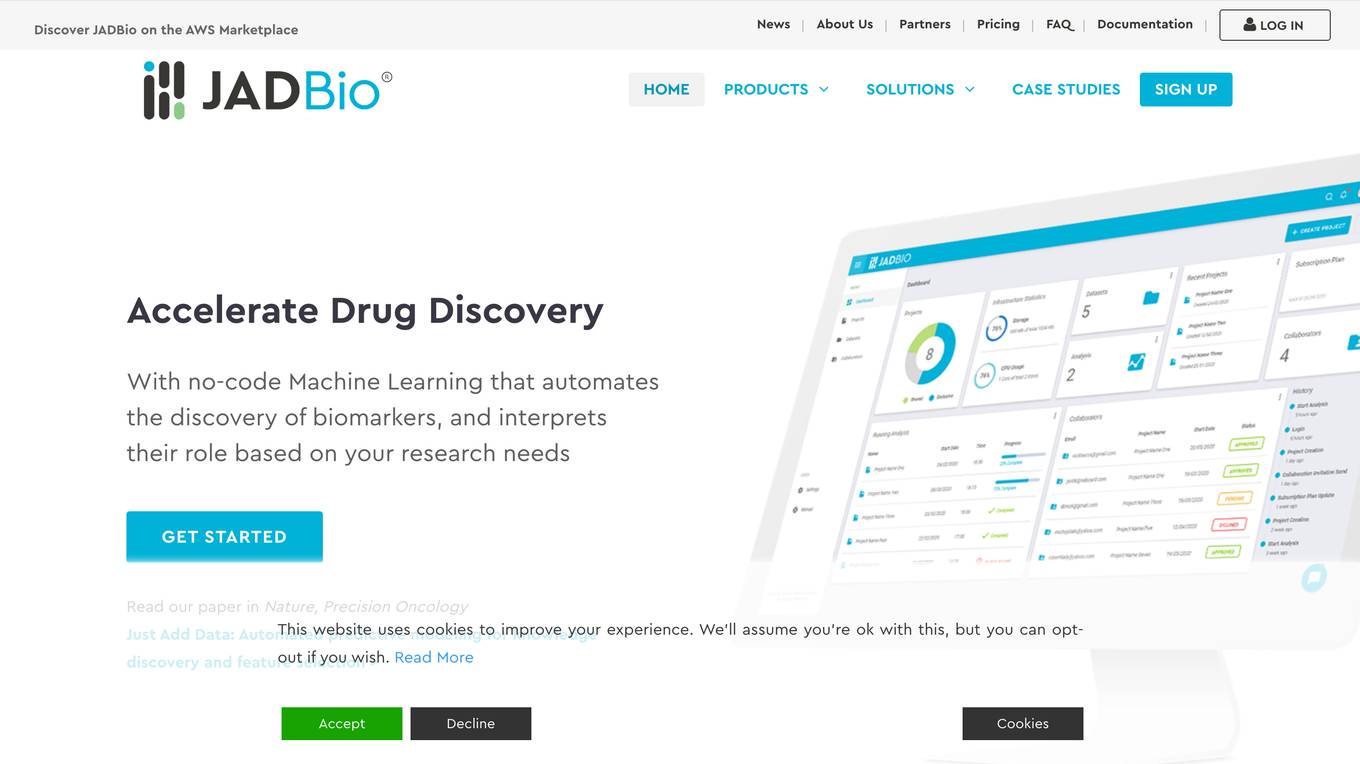
JADBio
JADBio is an automated machine learning (AutoML) platform designed to accelerate biomarker discovery and drug development processes. It offers a no-code solution that automates the discovery of biomarkers and interprets their role based on research needs. JADBio can parse multi-omics data, including genomics, transcriptome, metagenome, proteome, metabolome, phenotype/clinical data, and images, enabling users to efficiently discover insights for various conditions such as cancer, immune system disorders, chronic diseases, infectious diseases, and mental health. The platform is trusted by partners in precision health and medicine and is continuously evolving to disrupt drug discovery times and costs at all stages.
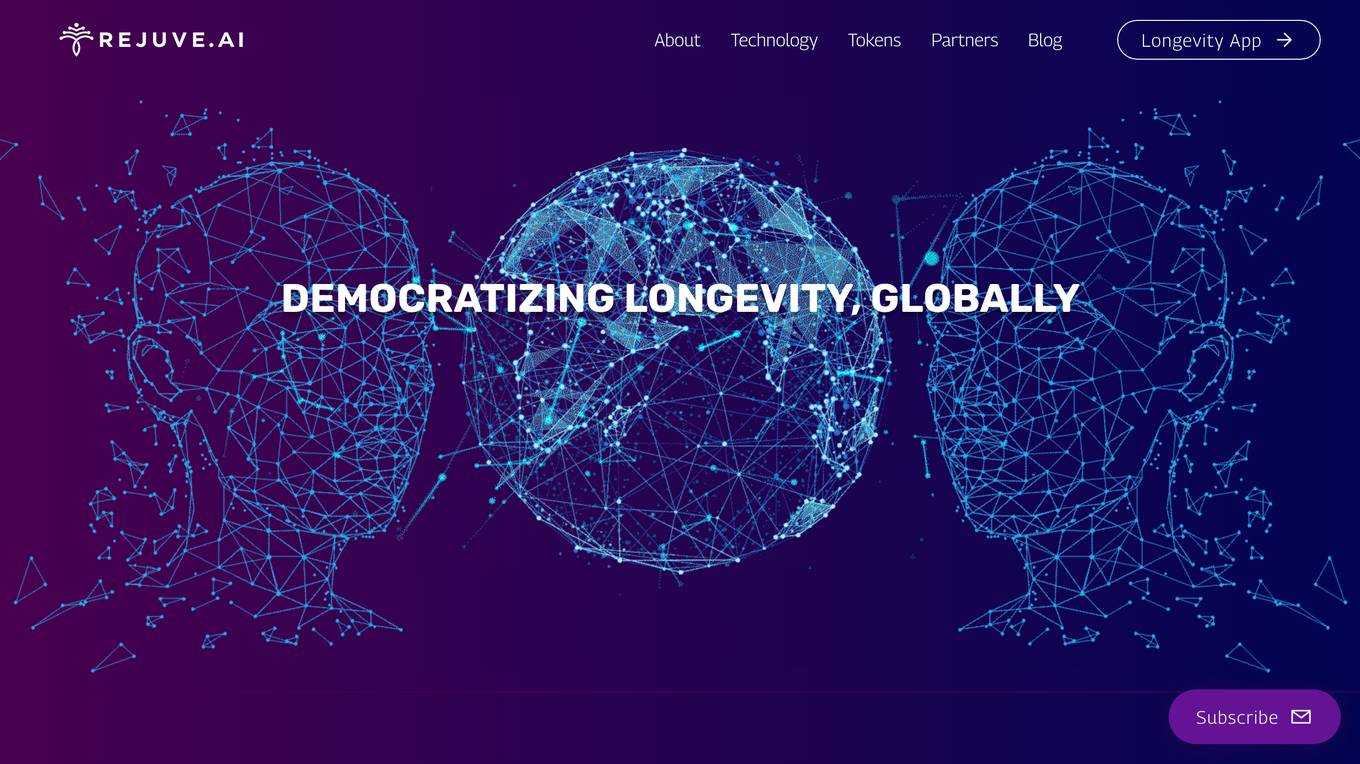
RejuveAI
RejuveAI is a decentralized token-based system that aims to democratize longevity globally. The Longevity App allows users to monitor essential health metrics, enhance lifespan, and earn RJV tokens. The application leverages revolutionary AI technology to analyze human body functions in-depth, providing insights for aging combat. RejuveAI collaborates with researchers, clinics, and data enthusiasts to ensure innovative outcomes are affordable and accessible. The platform also offers exclusive discounts on travel, supplements, medical tests, and longevity therapies.
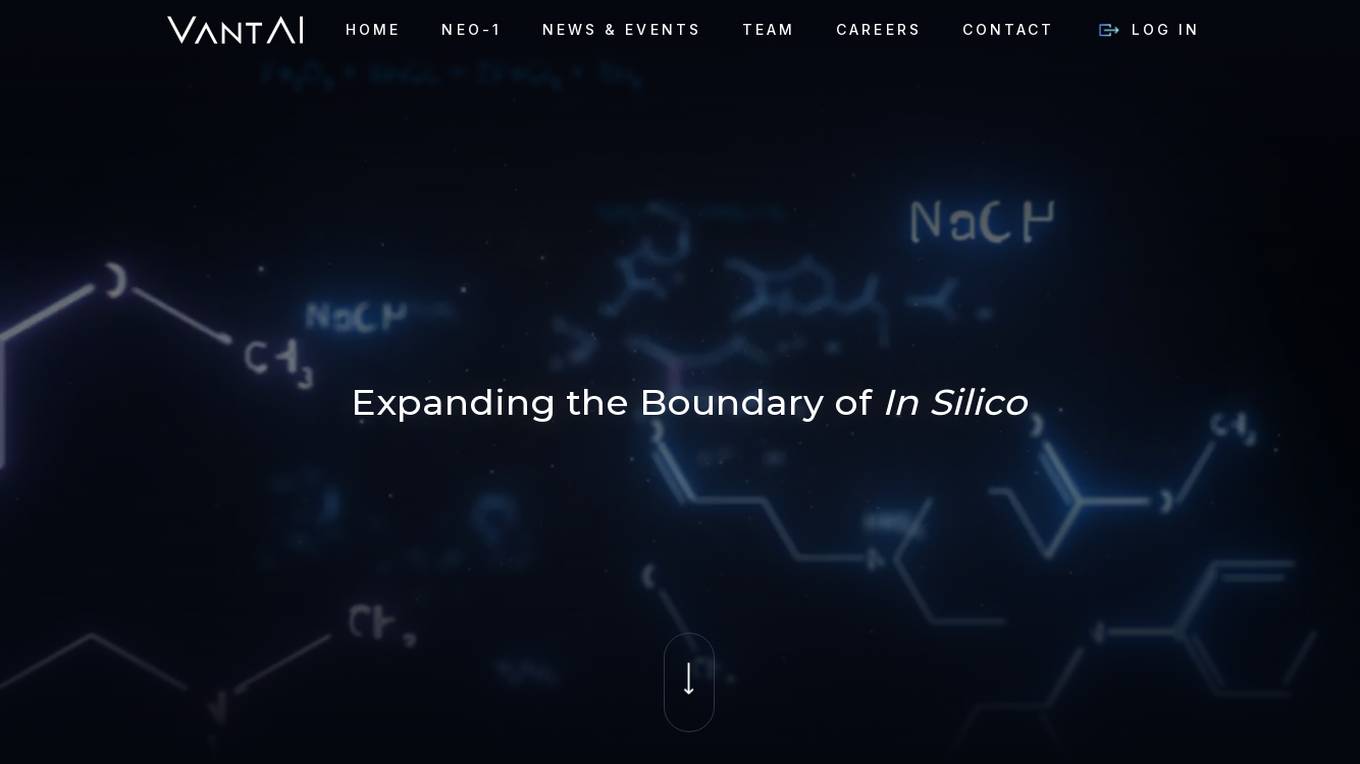
VantAI
VantAI is an AI application focused on generative AI-enabled drug discovery. Their mission is to unlock a new chapter in medicine by making protein interactions programmable. They have an integrated discovery platform with phase-shifting technologies designed to unlock the full potential of the proximity modulator modality. VantAI collaborates with industry leaders to build the future of therapeutic design. The company has launched Neo-1, the first AI model to rewire molecular interactions by unifying structure prediction and generation.

HUAWEI Cloud Pangu Drug Molecule Model
HUAWEI Cloud Pangu is an AI tool designed for accelerating drug discovery by optimizing drug molecules. It offers features such as Molecule Search, Molecule Optimizer, and Pocket Molecule Design. Users can submit molecules for optimization and view historical optimization results. The tool is based on the MindSpore framework and has been visited over 300,000 times since August 23, 2021.
0 - Open Source Tools
20 - OpenAI Gpts
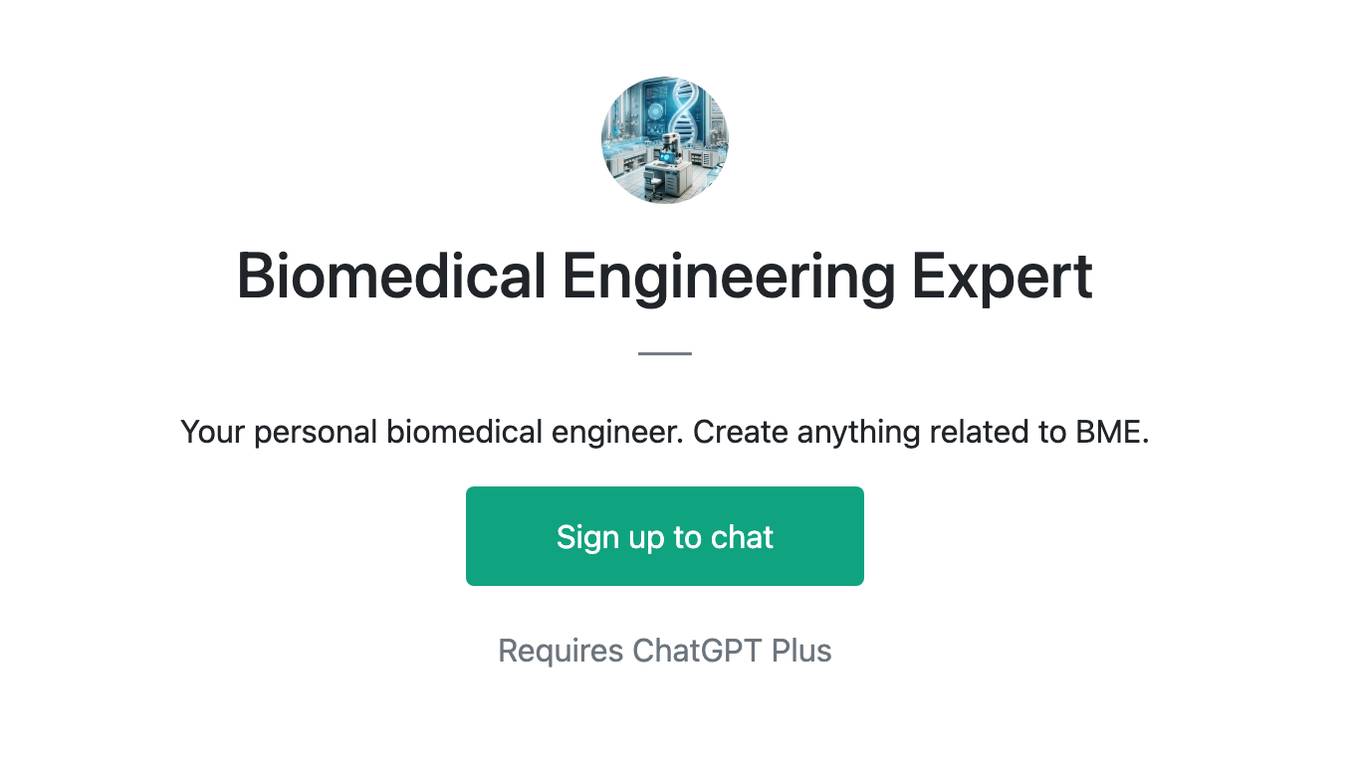
Biomedical Engineering Expert
Your personal biomedical engineer. Create anything related to BME.
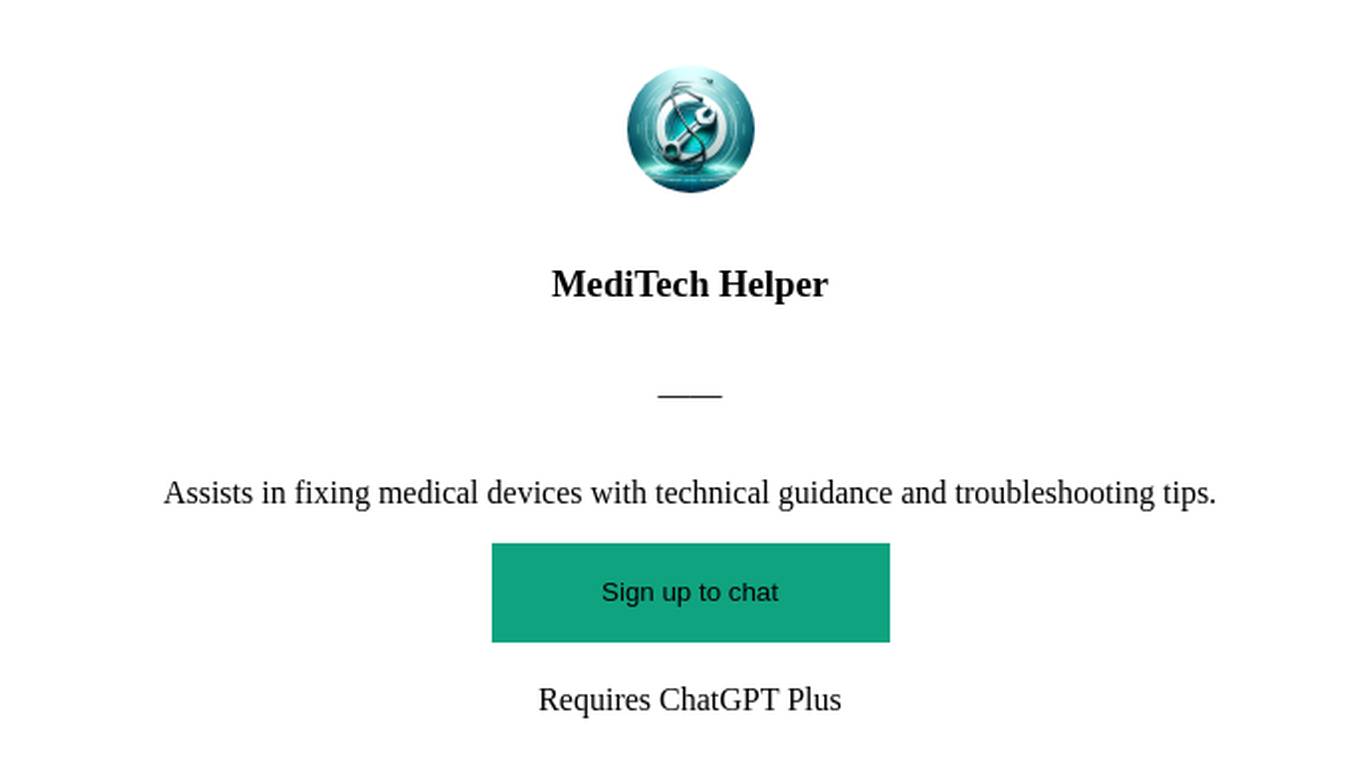
MediTech Helper
Assists in fixing medical devices with technical guidance and troubleshooting tips.
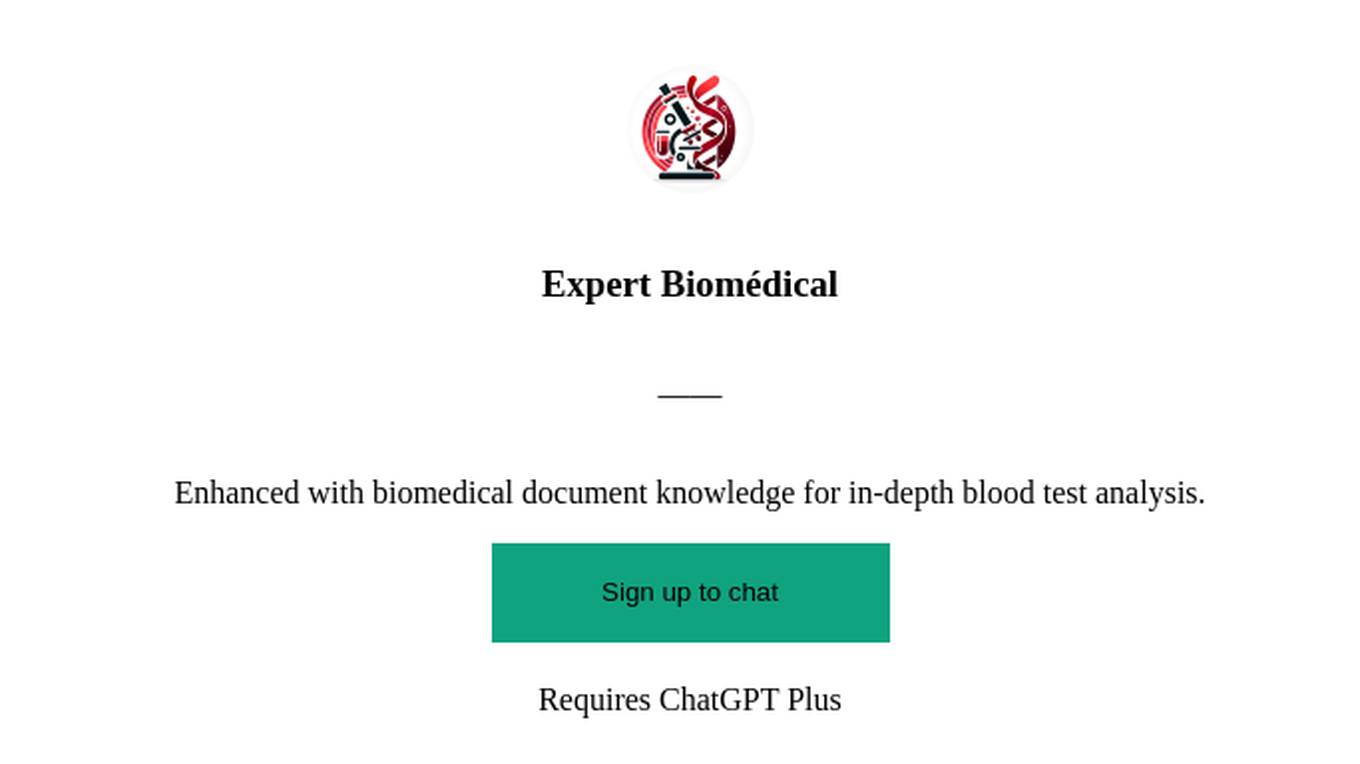
Expert Biomédical
Enhanced with biomedical document knowledge for in-depth blood test analysis.
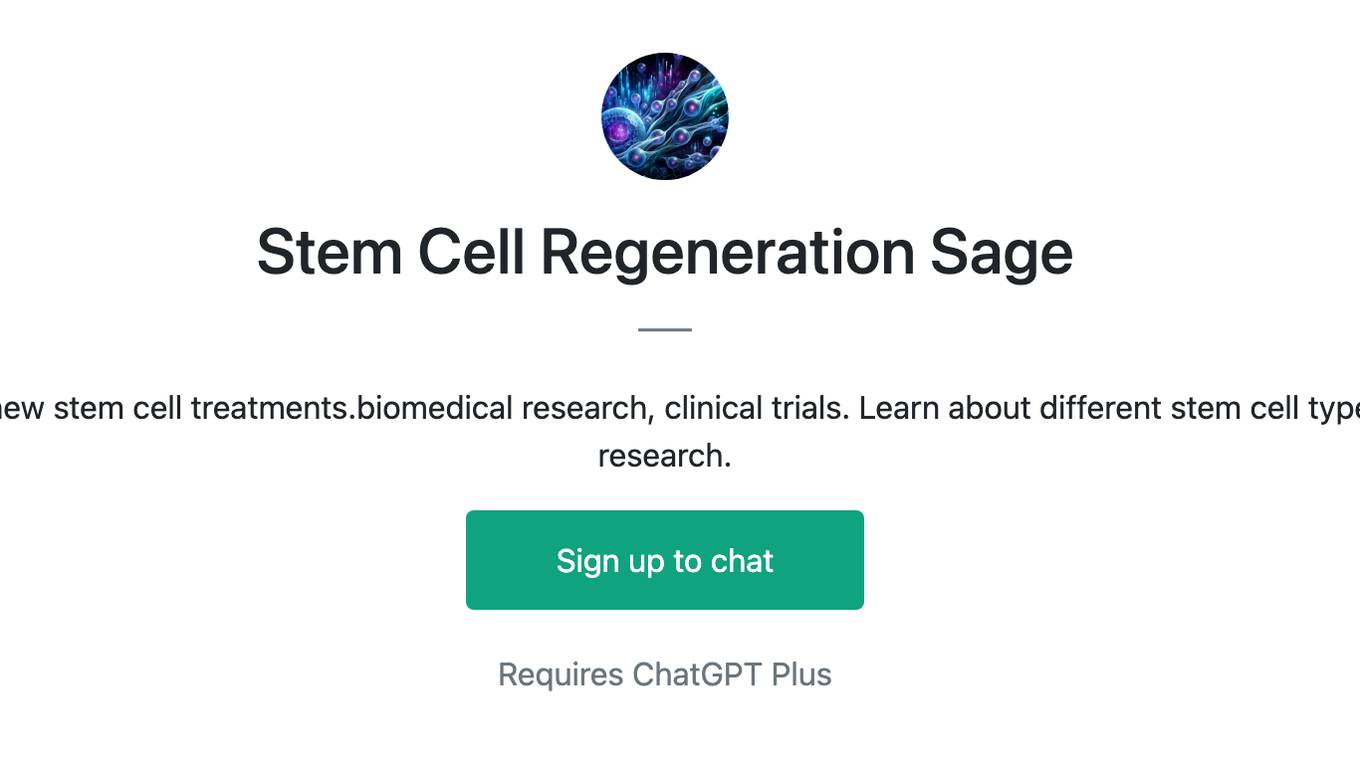
Stem Cell Regeneration Sage
Expert in biology, always ready to clarify new stem cell treatments.biomedical research, clinical trials. Learn about different stem cell types, current/future uses, and the latest in research.
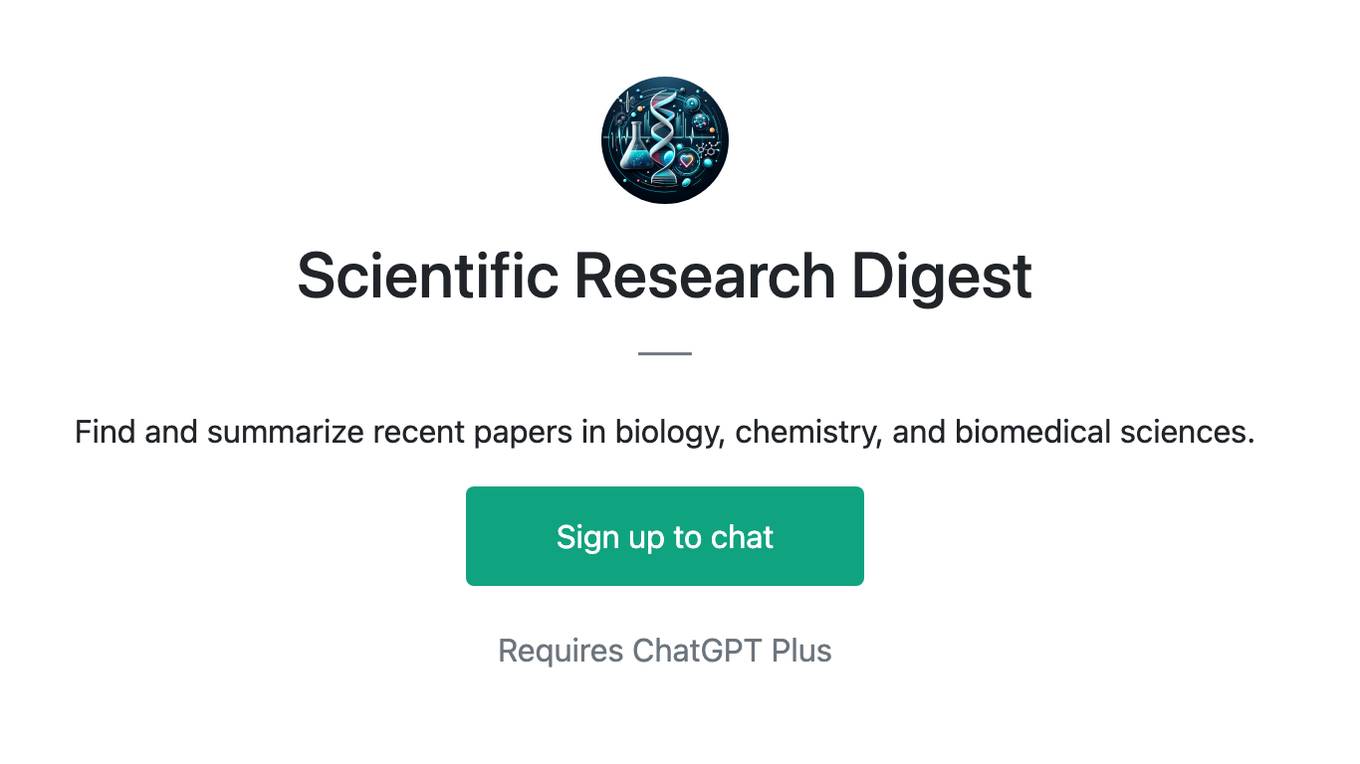
Scientific Research Digest
Find and summarize recent papers in biology, chemistry, and biomedical sciences.
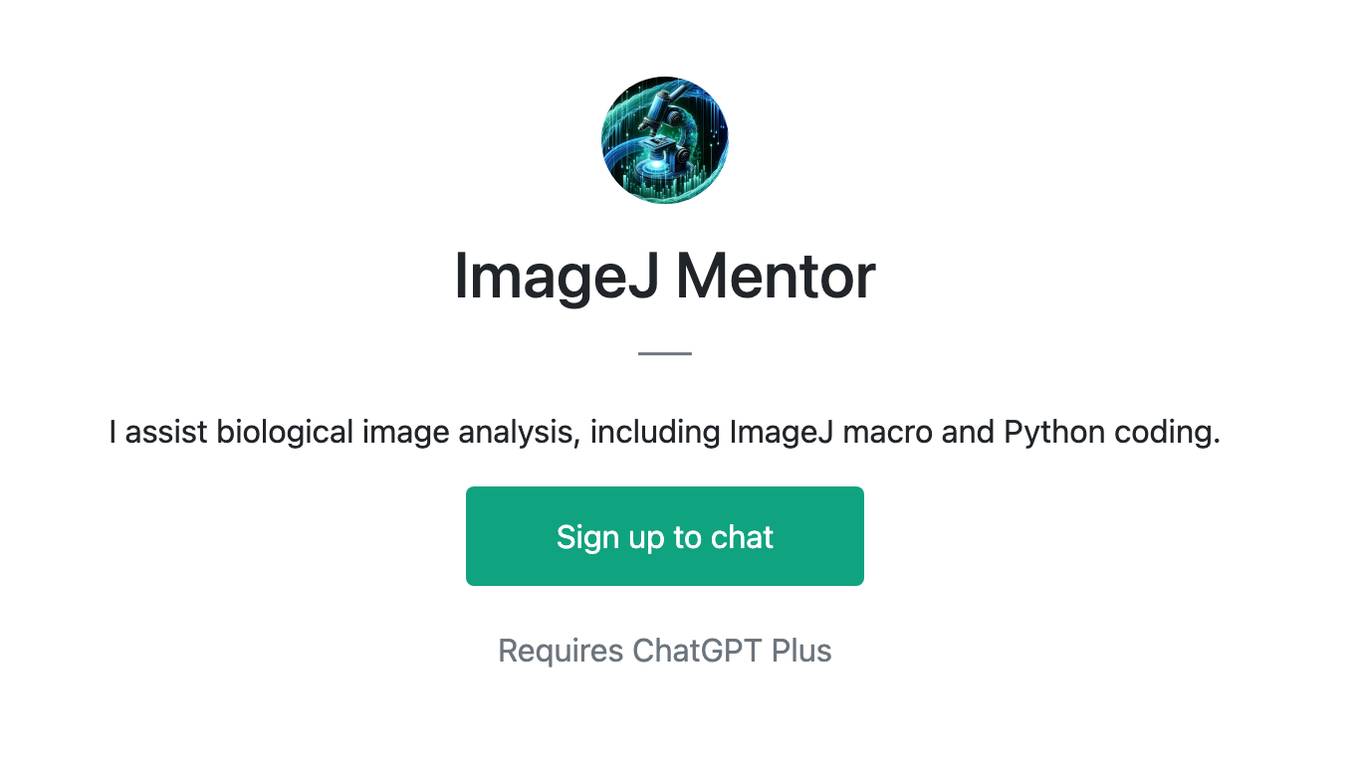
ImageJ Mentor
I assist biological image analysis, including ImageJ macro and Python coding.
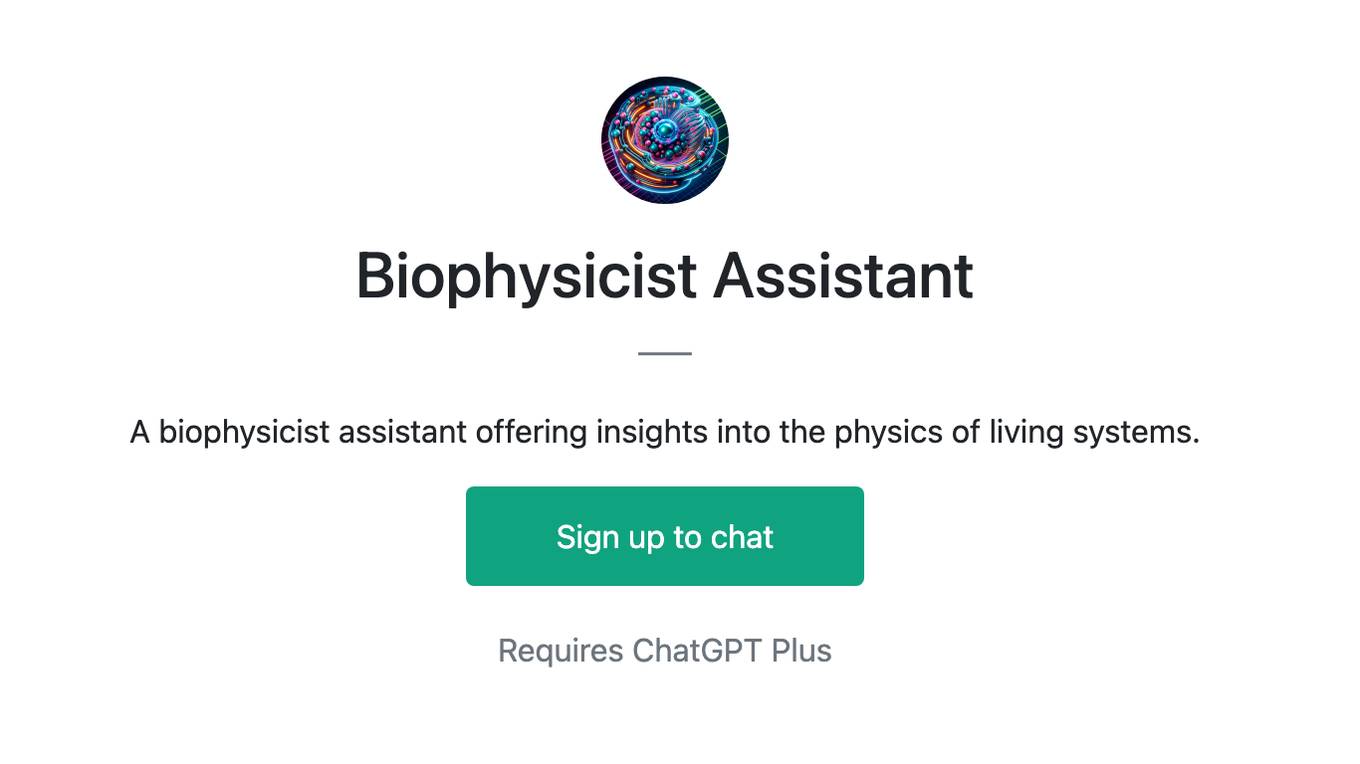
Biophysicist Assistant
A biophysicist assistant offering insights into the physics of living systems.
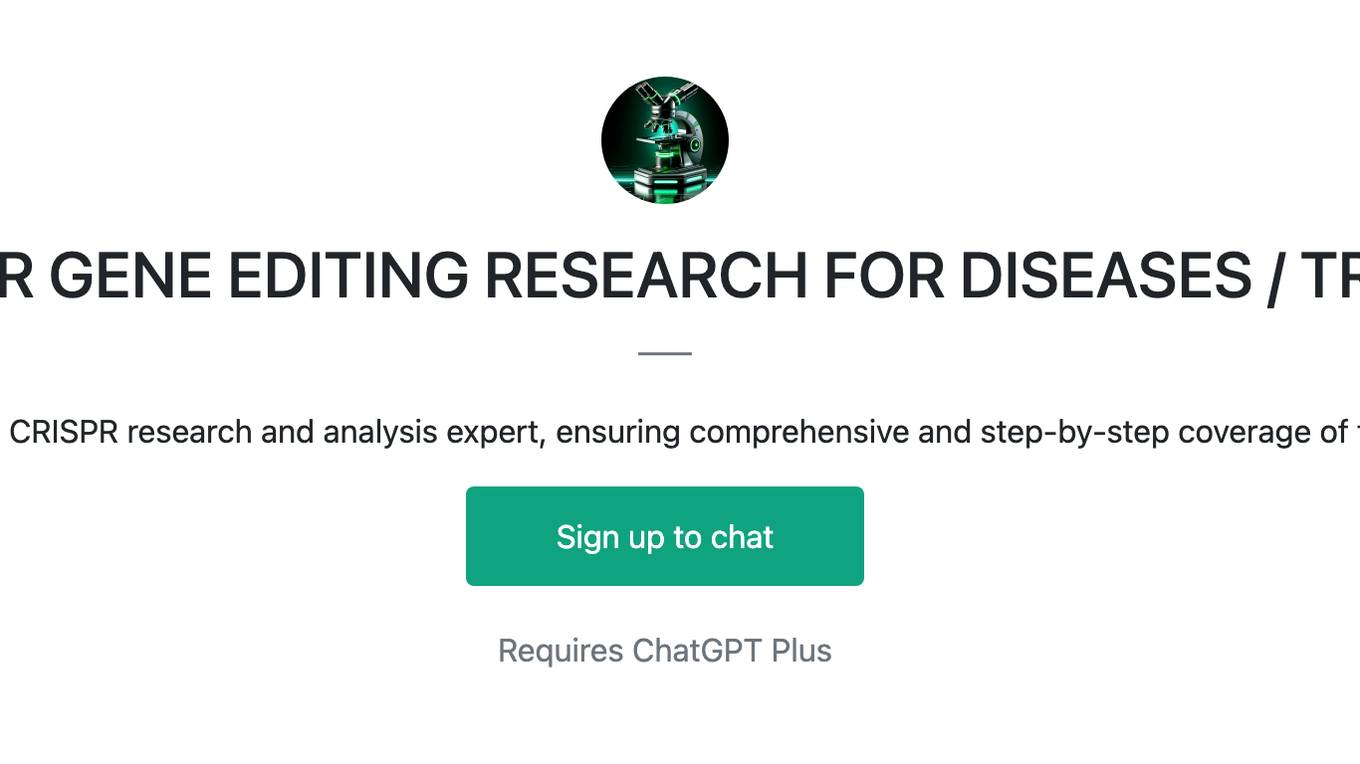
CRISPR GENE EDITING RESEARCH FOR DISEASES / TRAITS
In-depth CRISPR research and analysis expert, ensuring comprehensive and step-by-step coverage of topics.
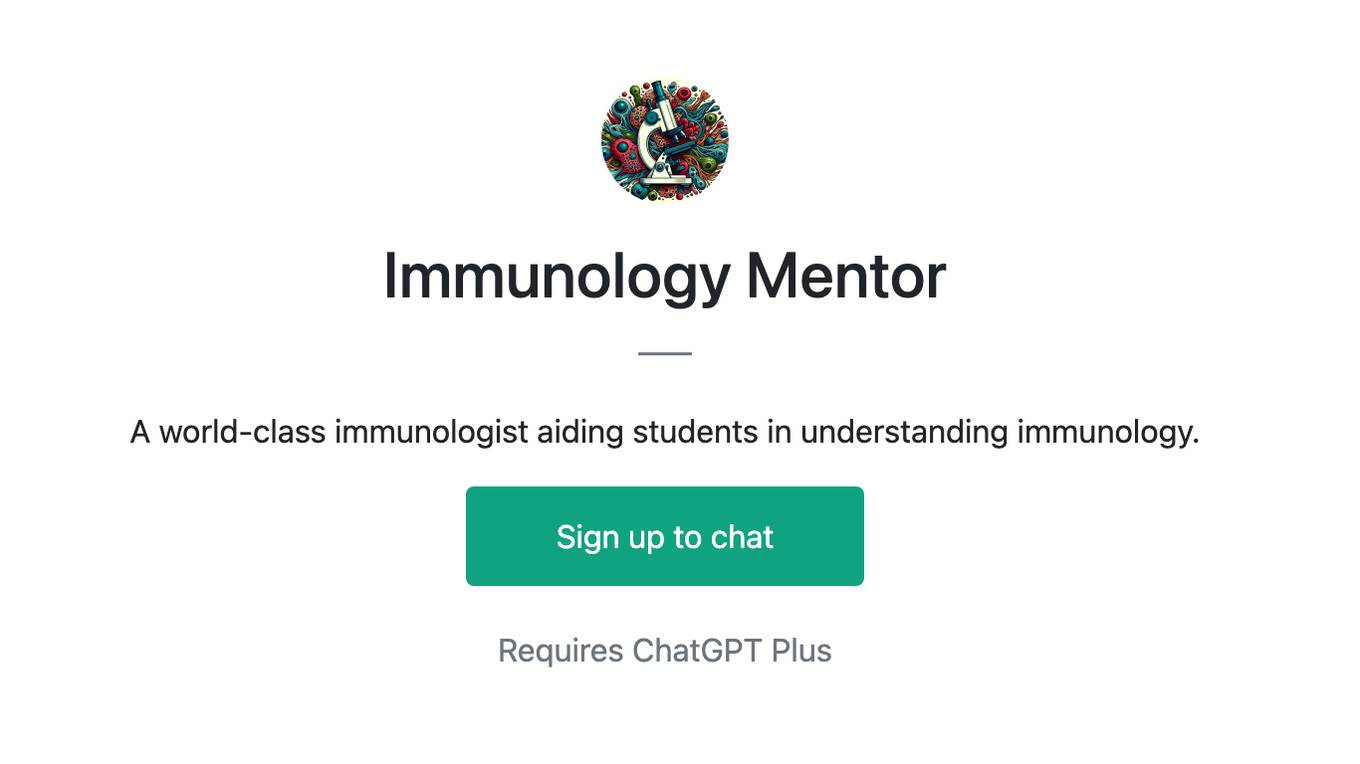
Immunology Mentor
A world-class immunologist aiding students in understanding immunology.
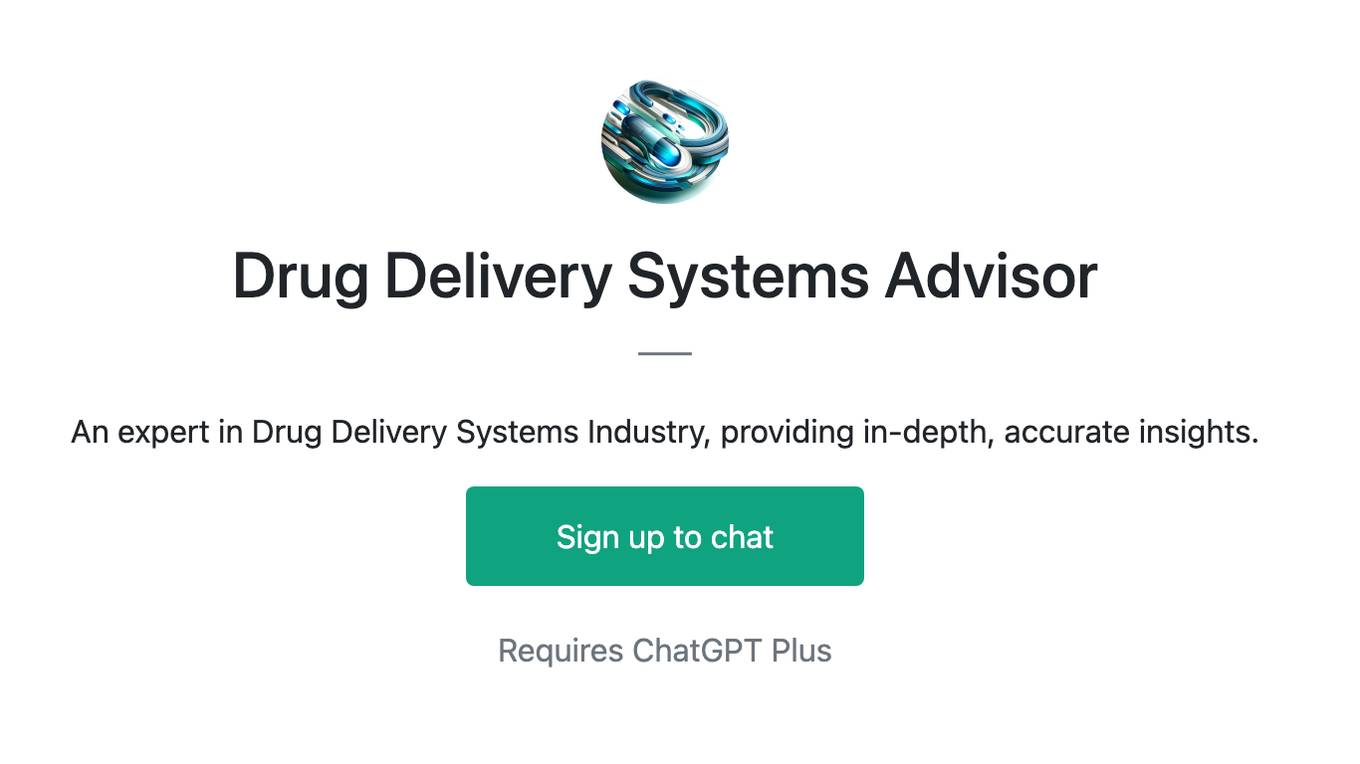
Drug Delivery Systems Advisor
An expert in Drug Delivery Systems Industry, providing in-depth, accurate insights.
